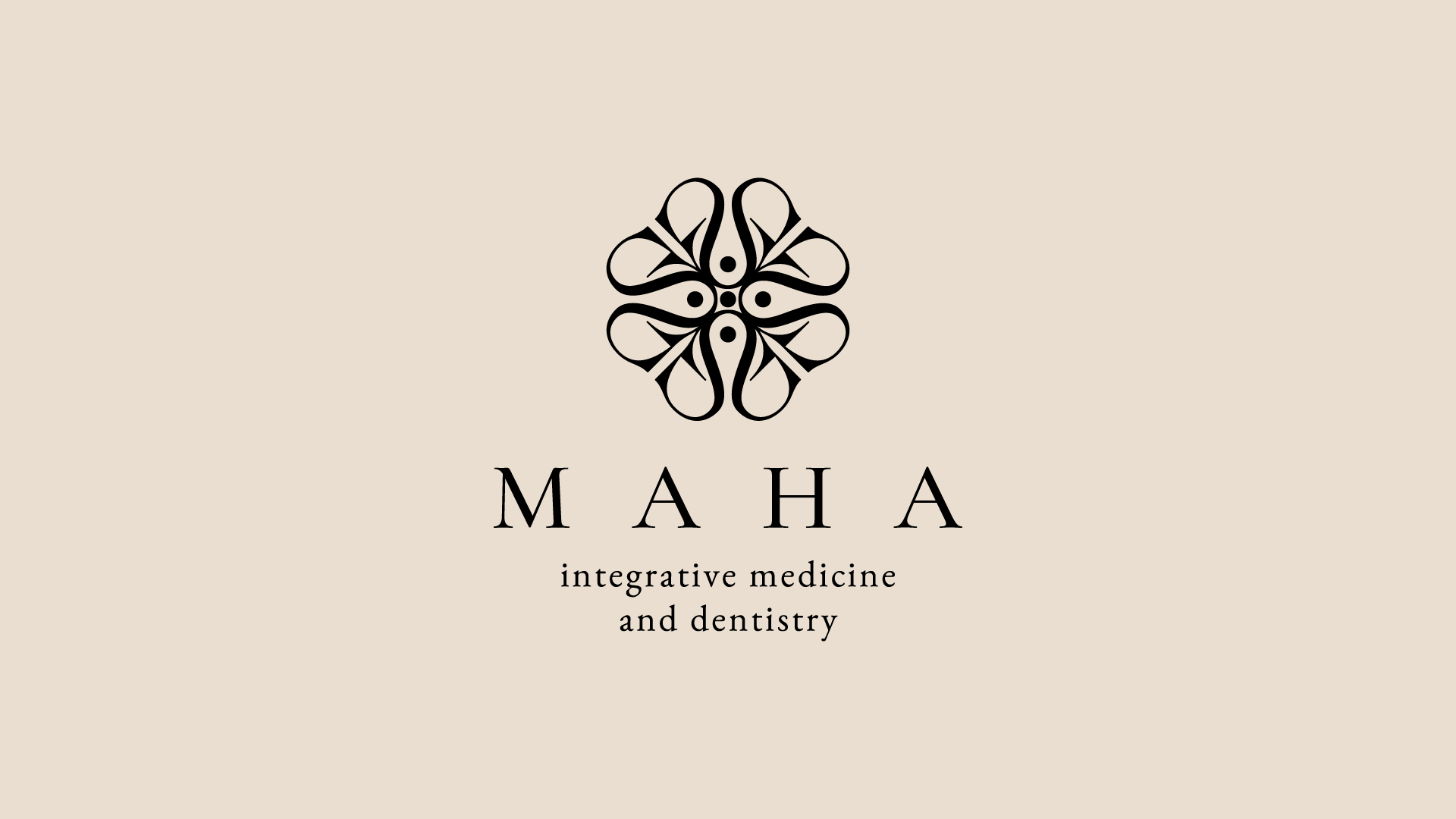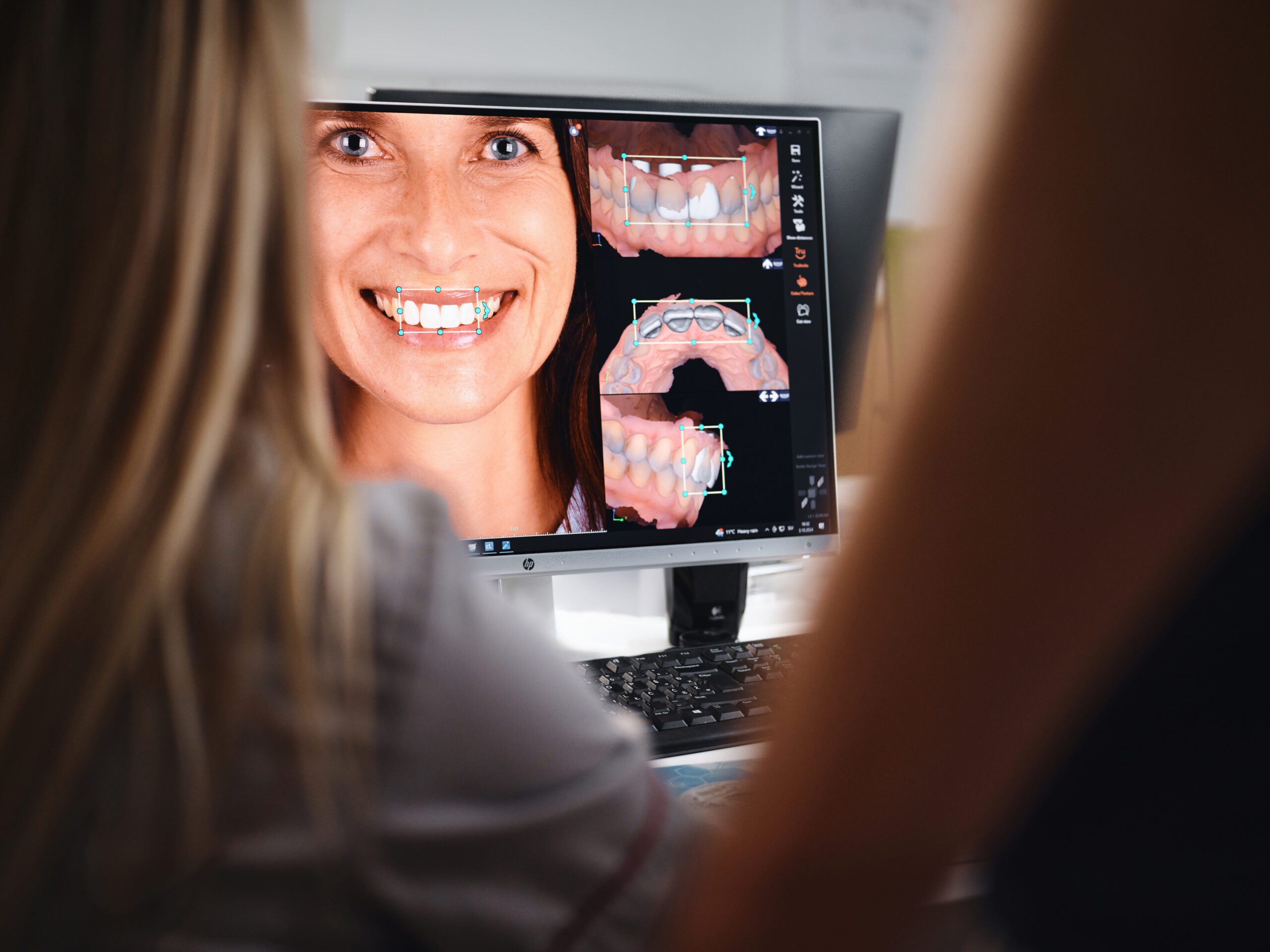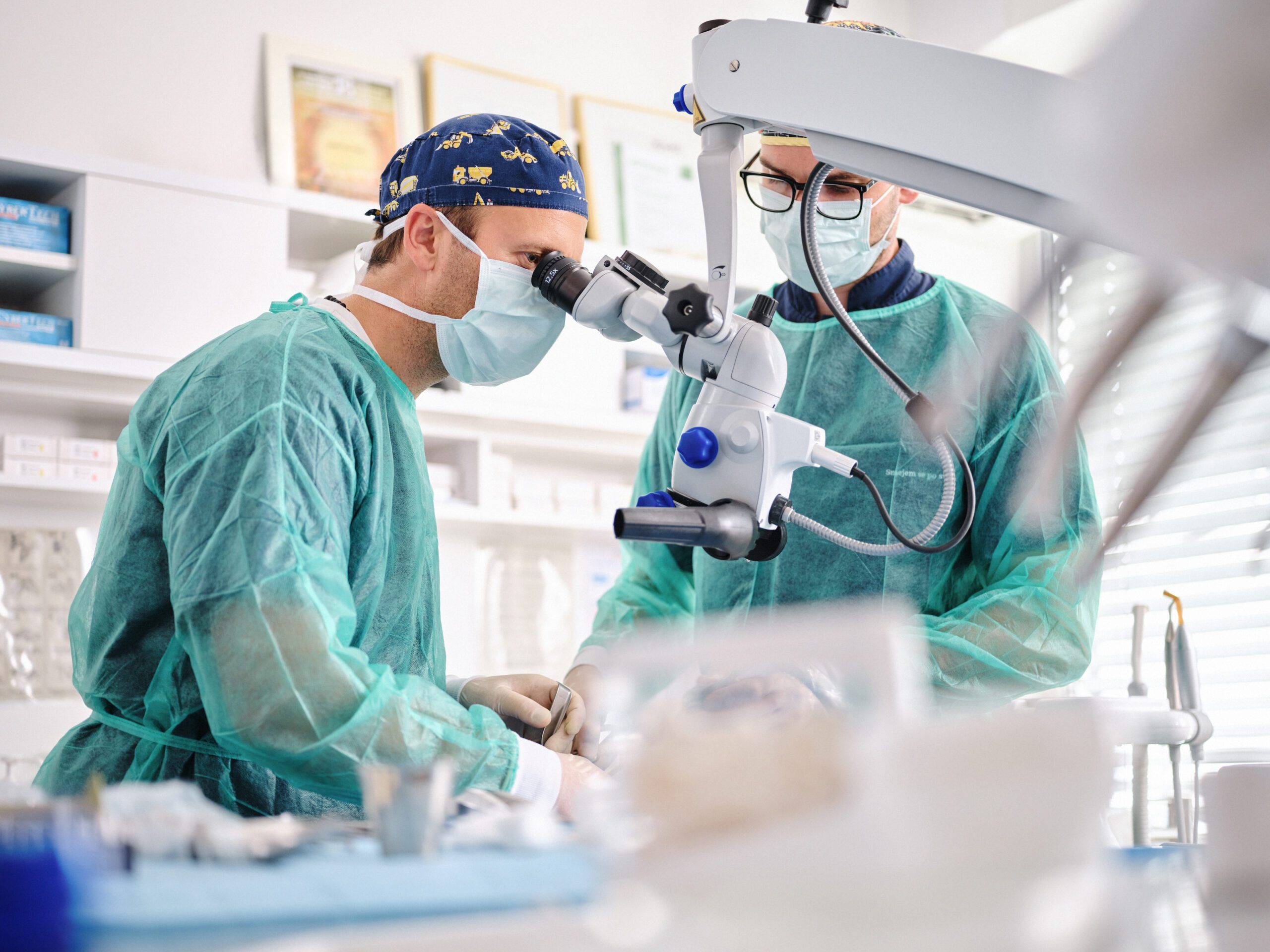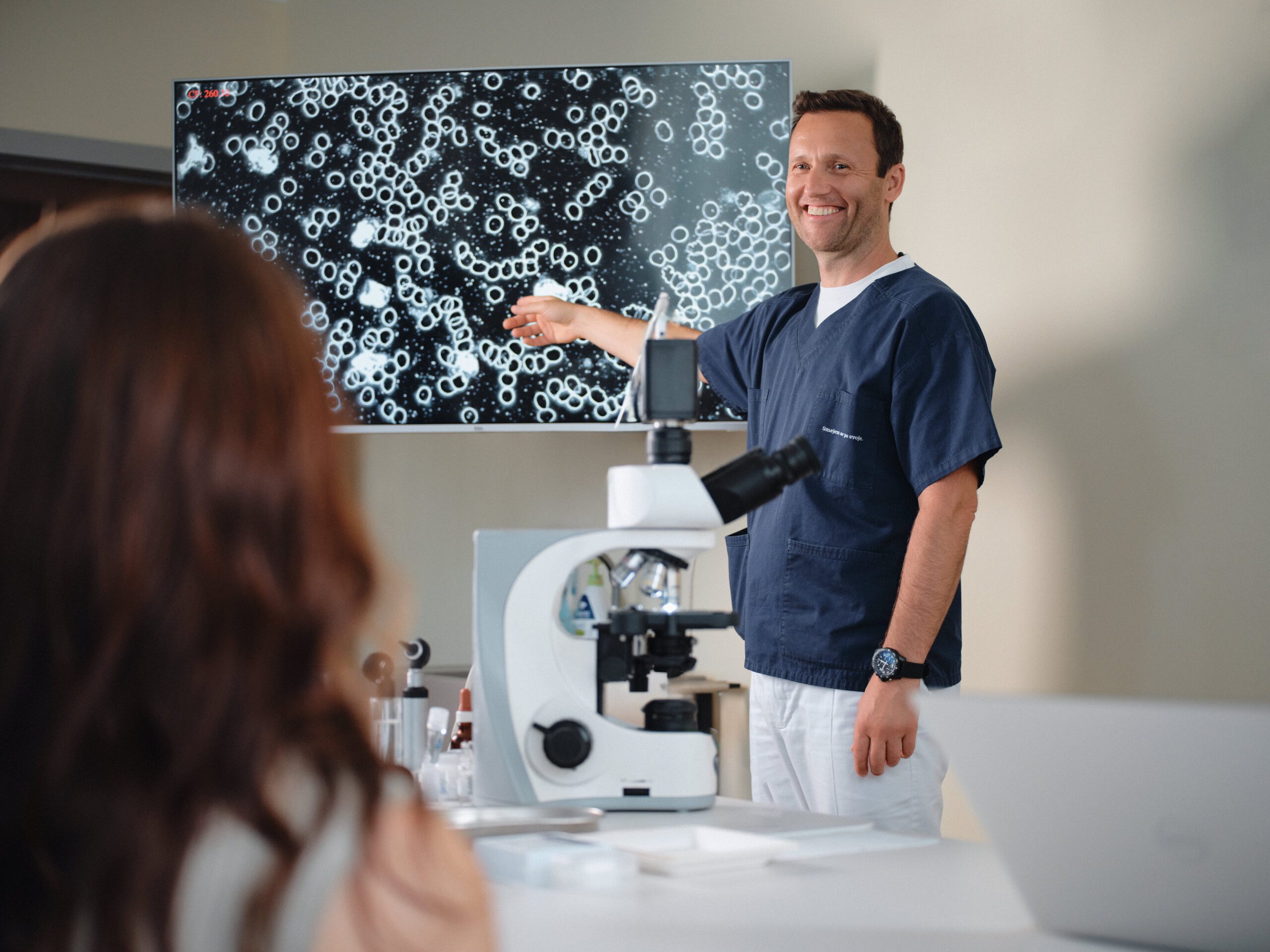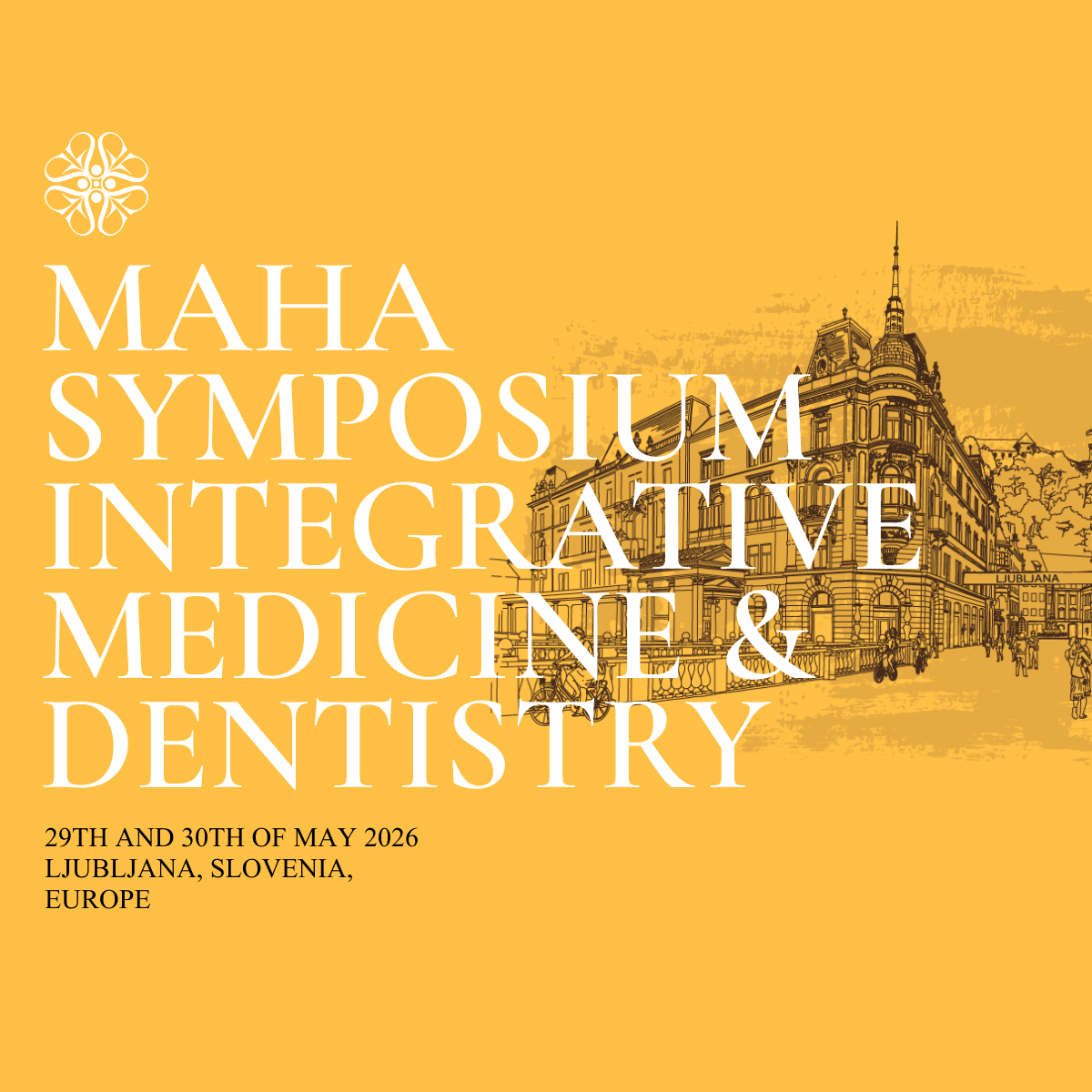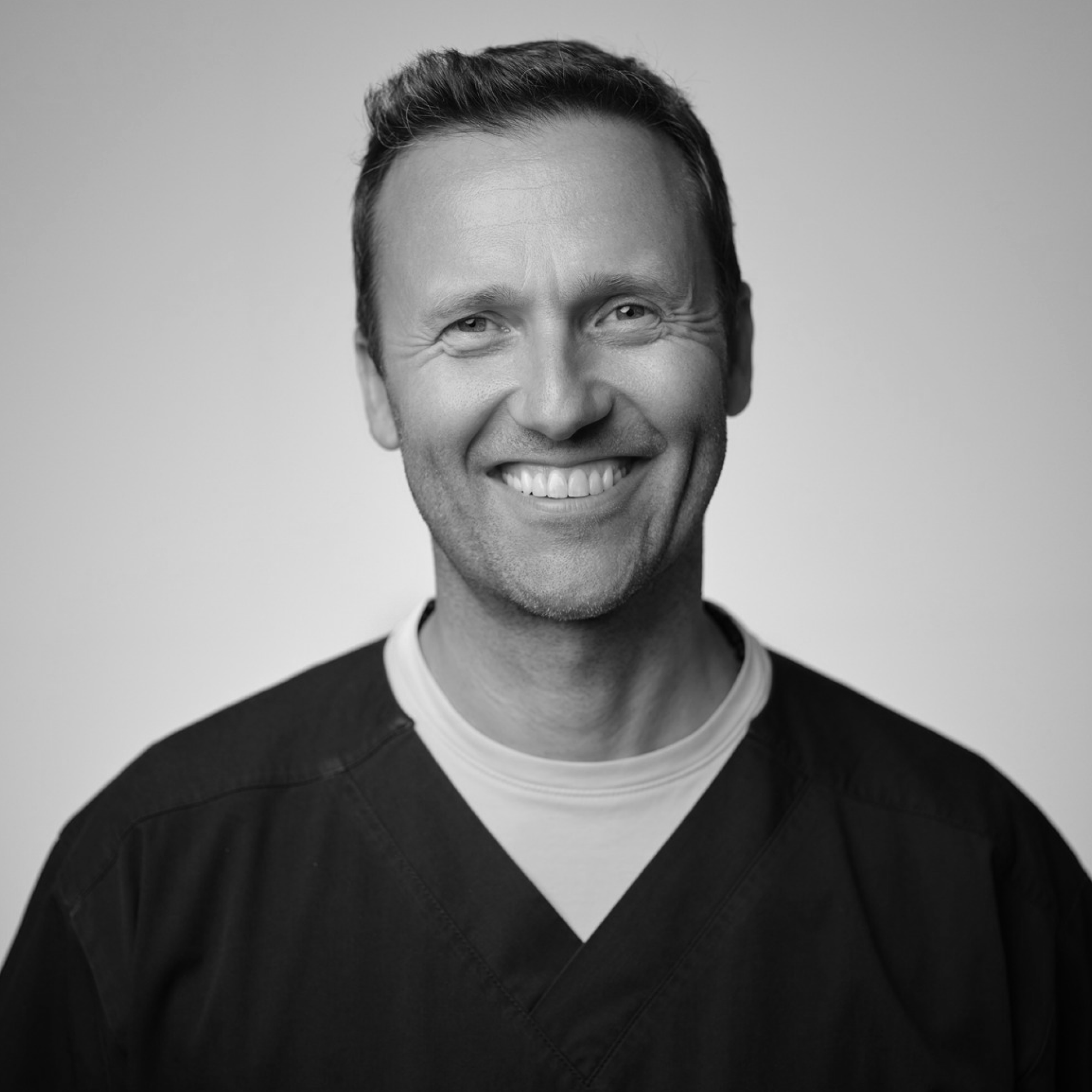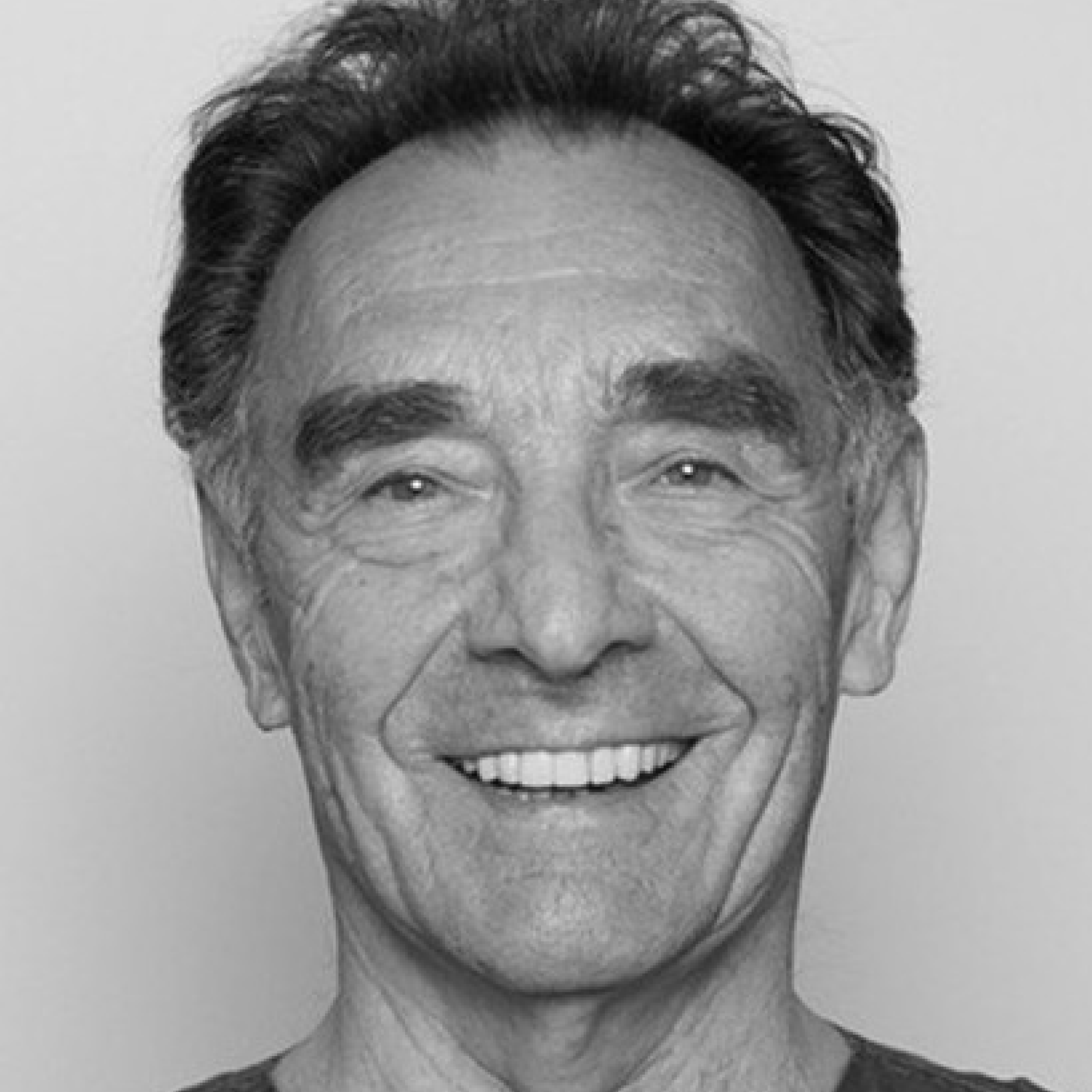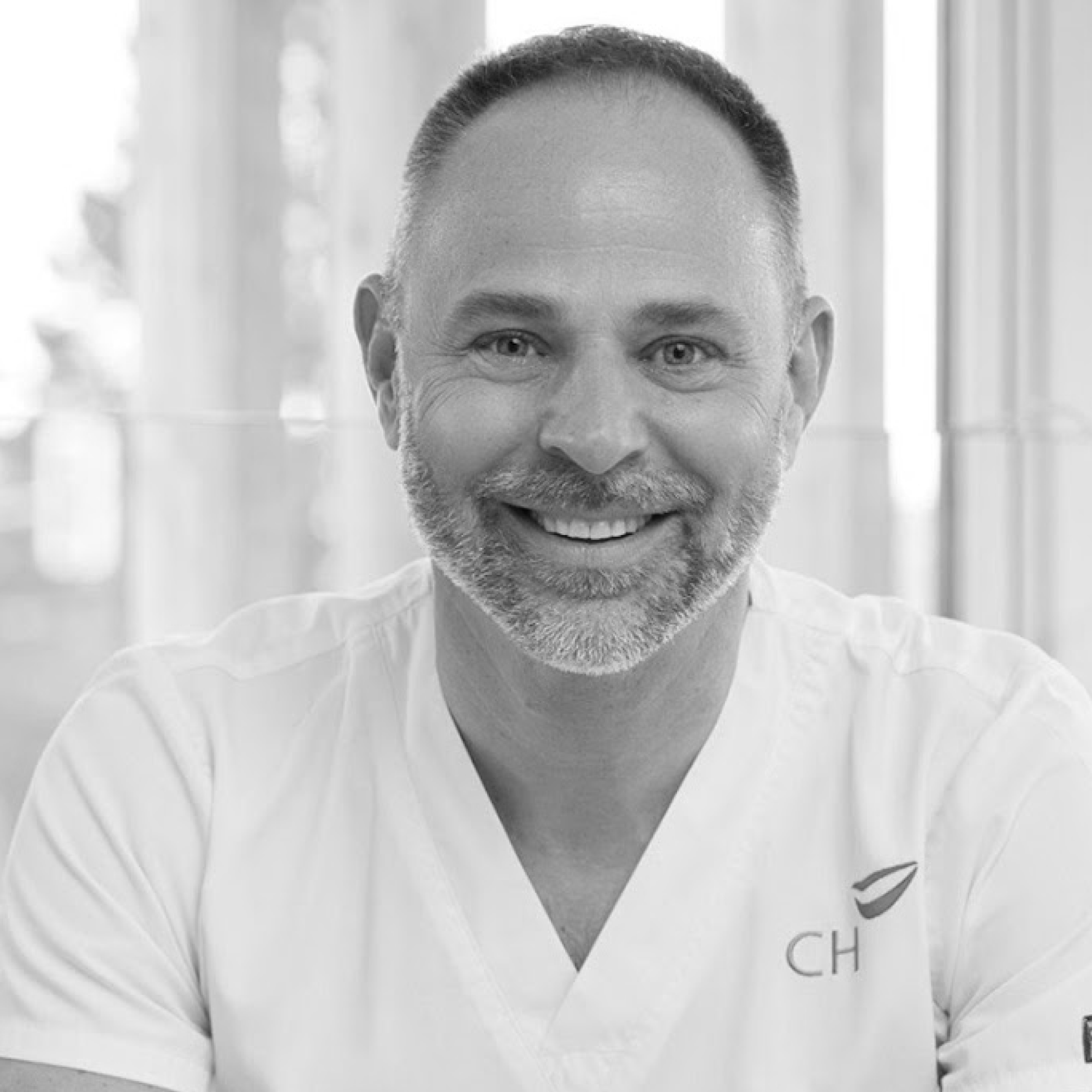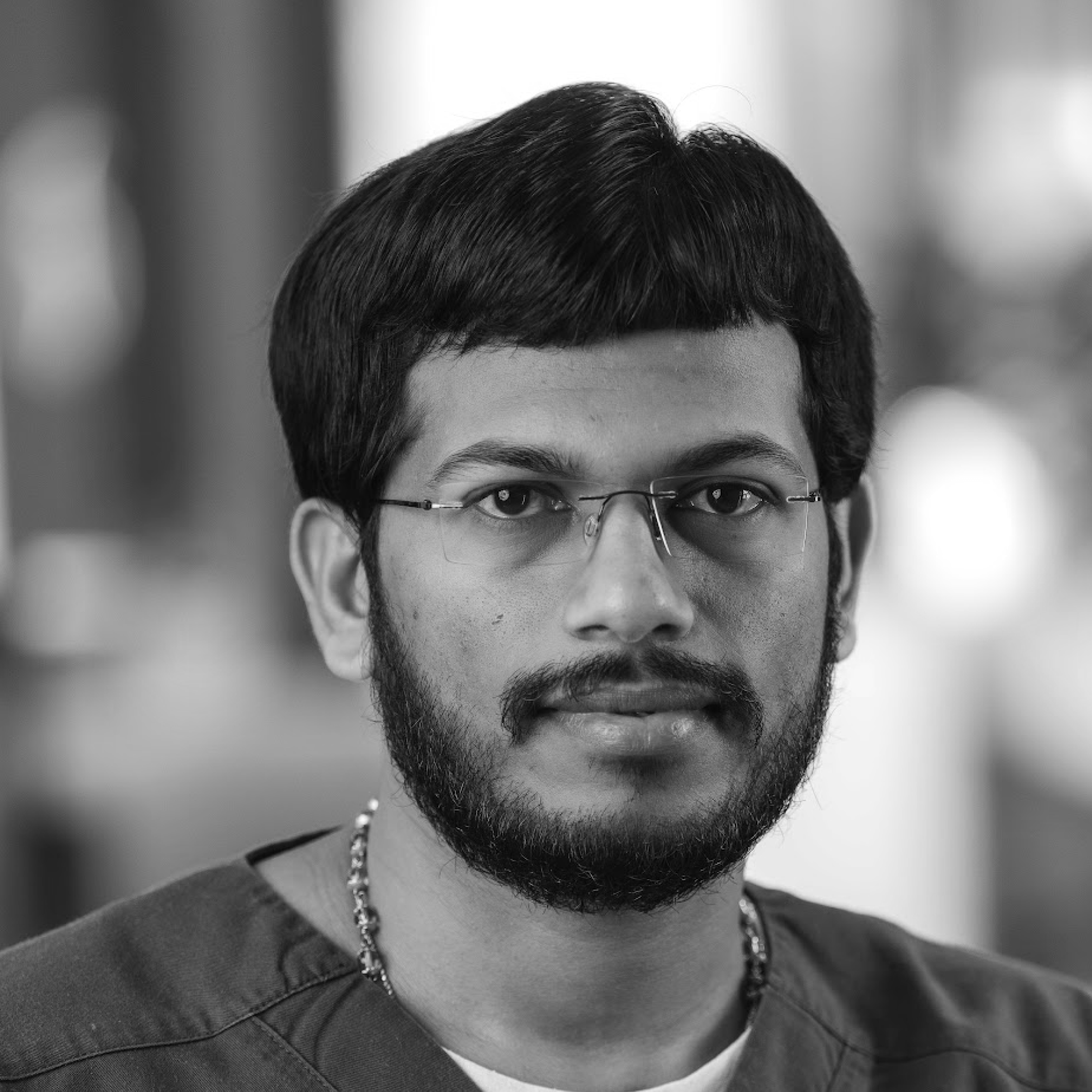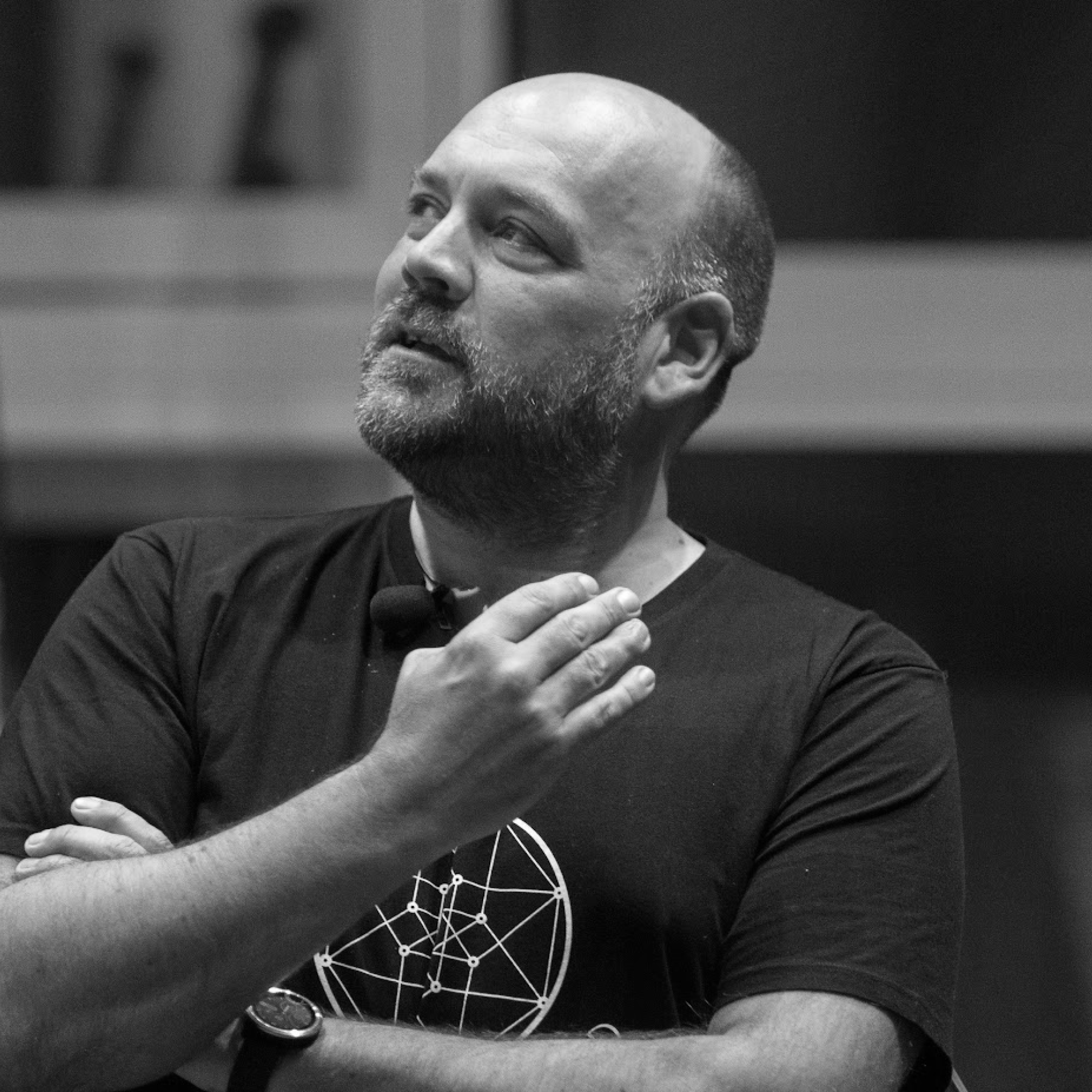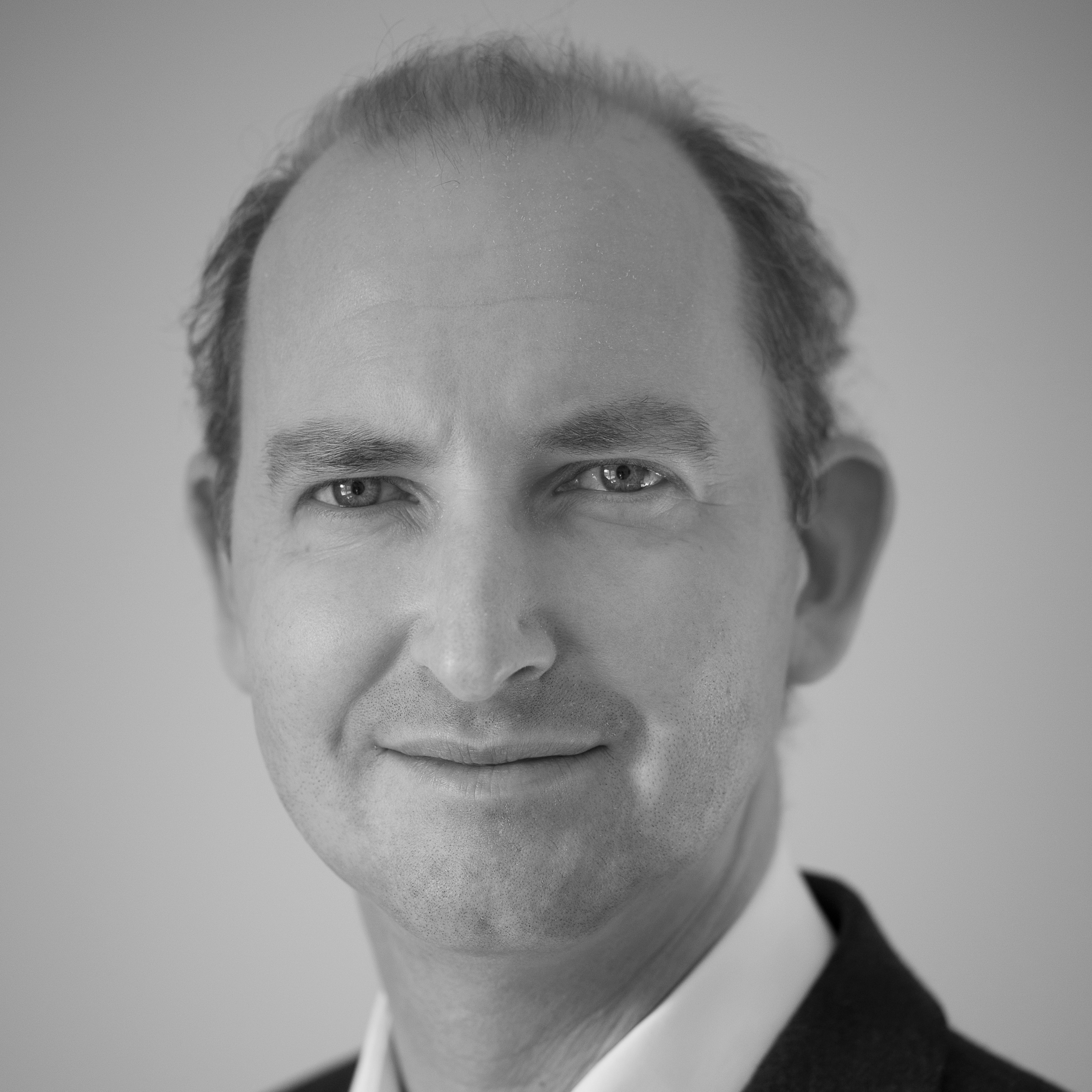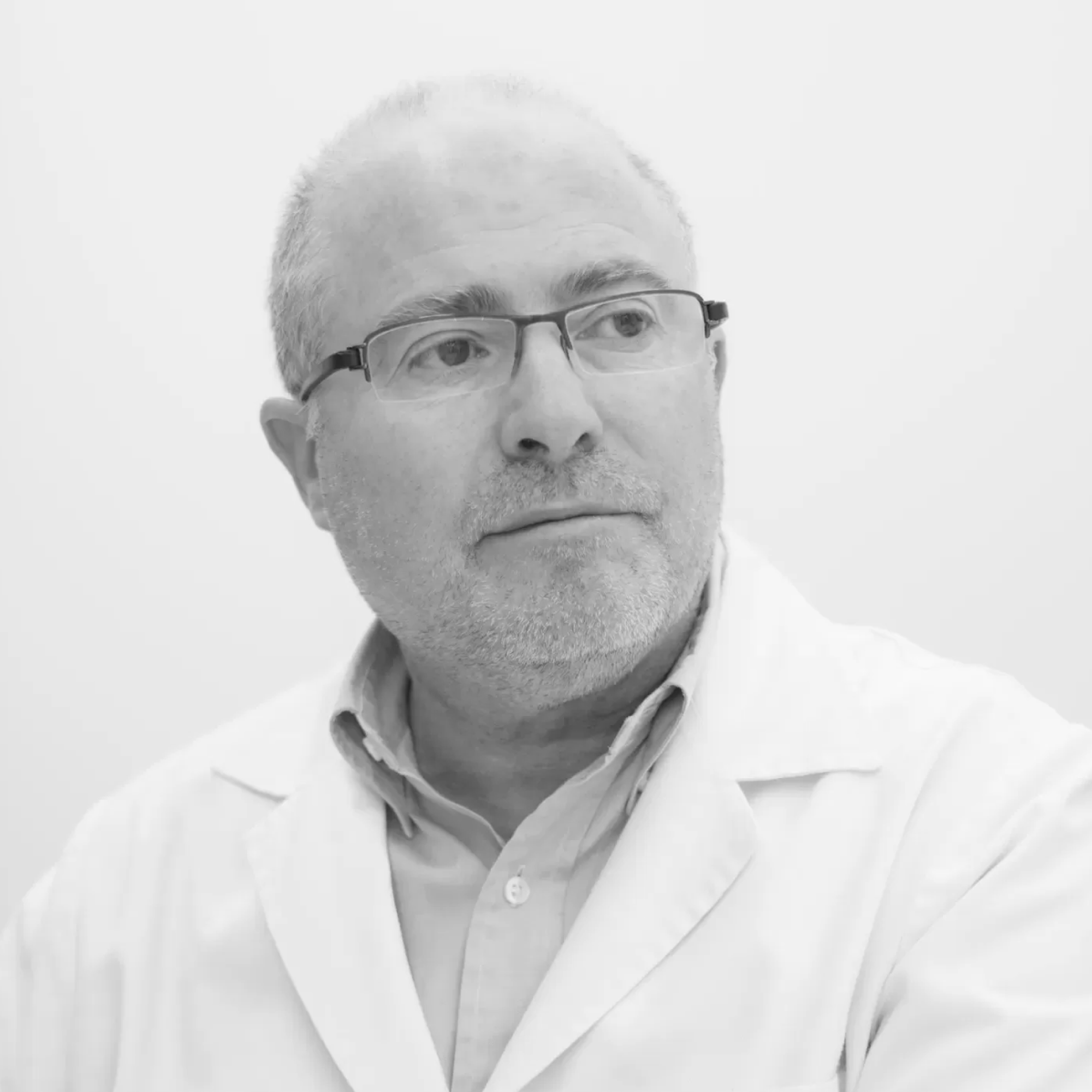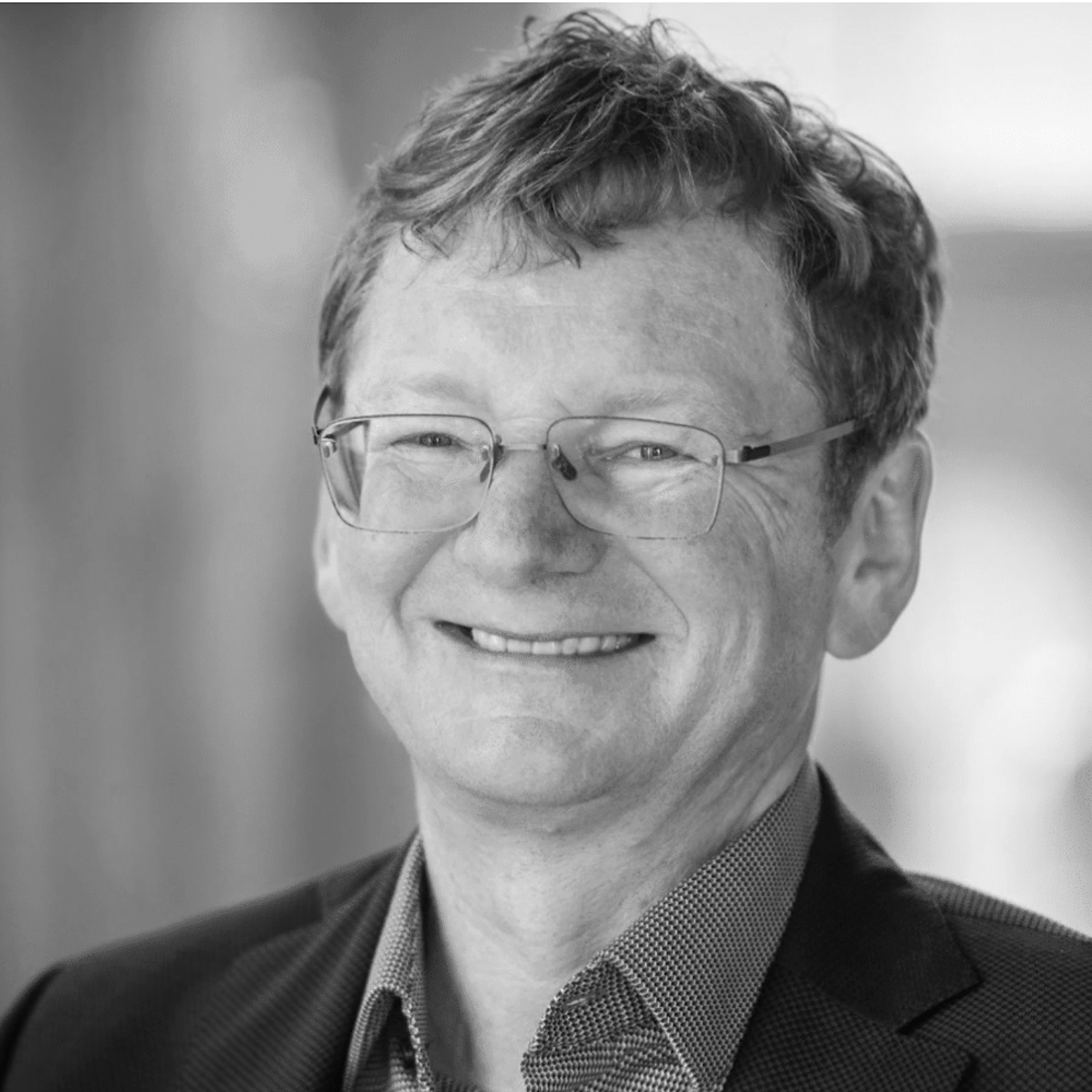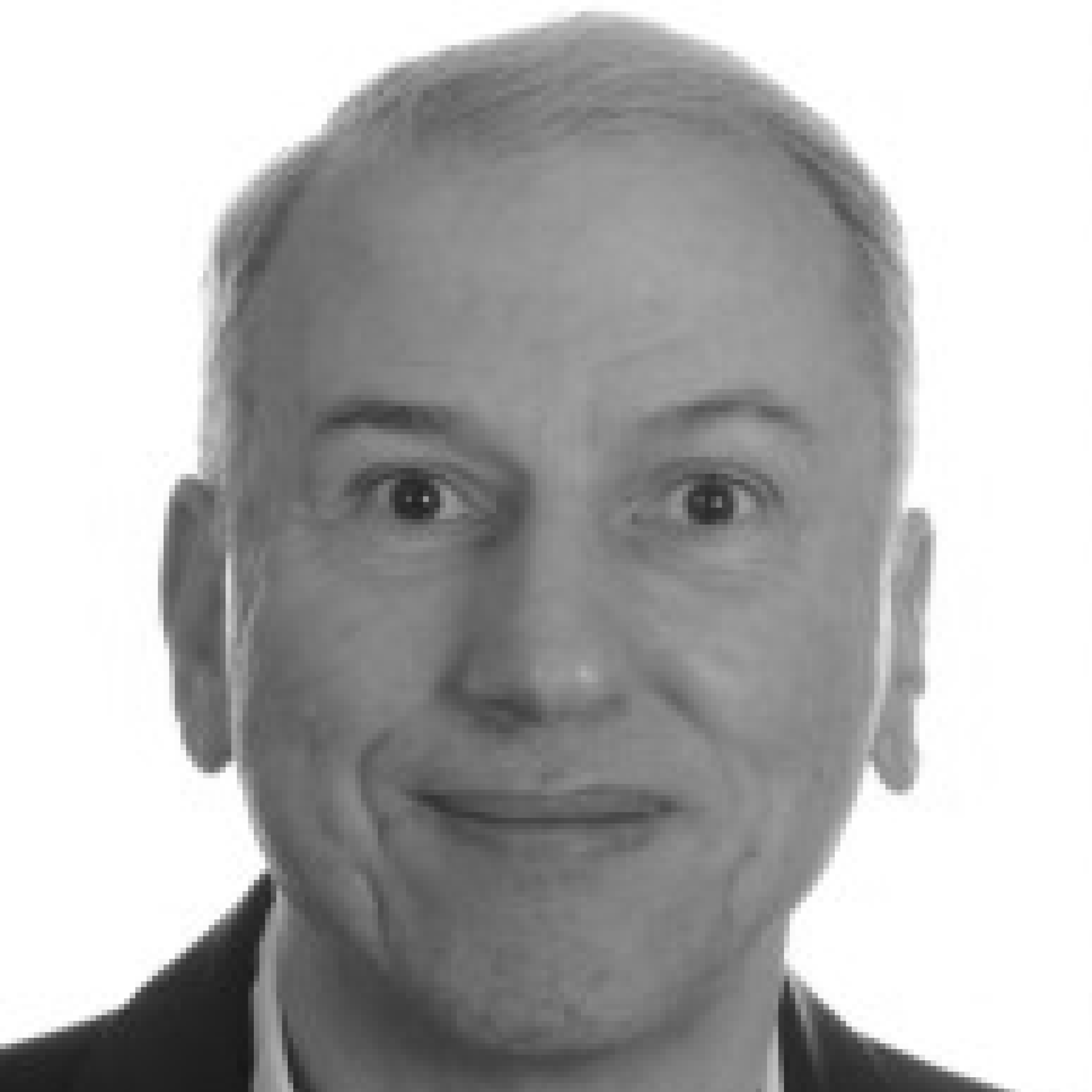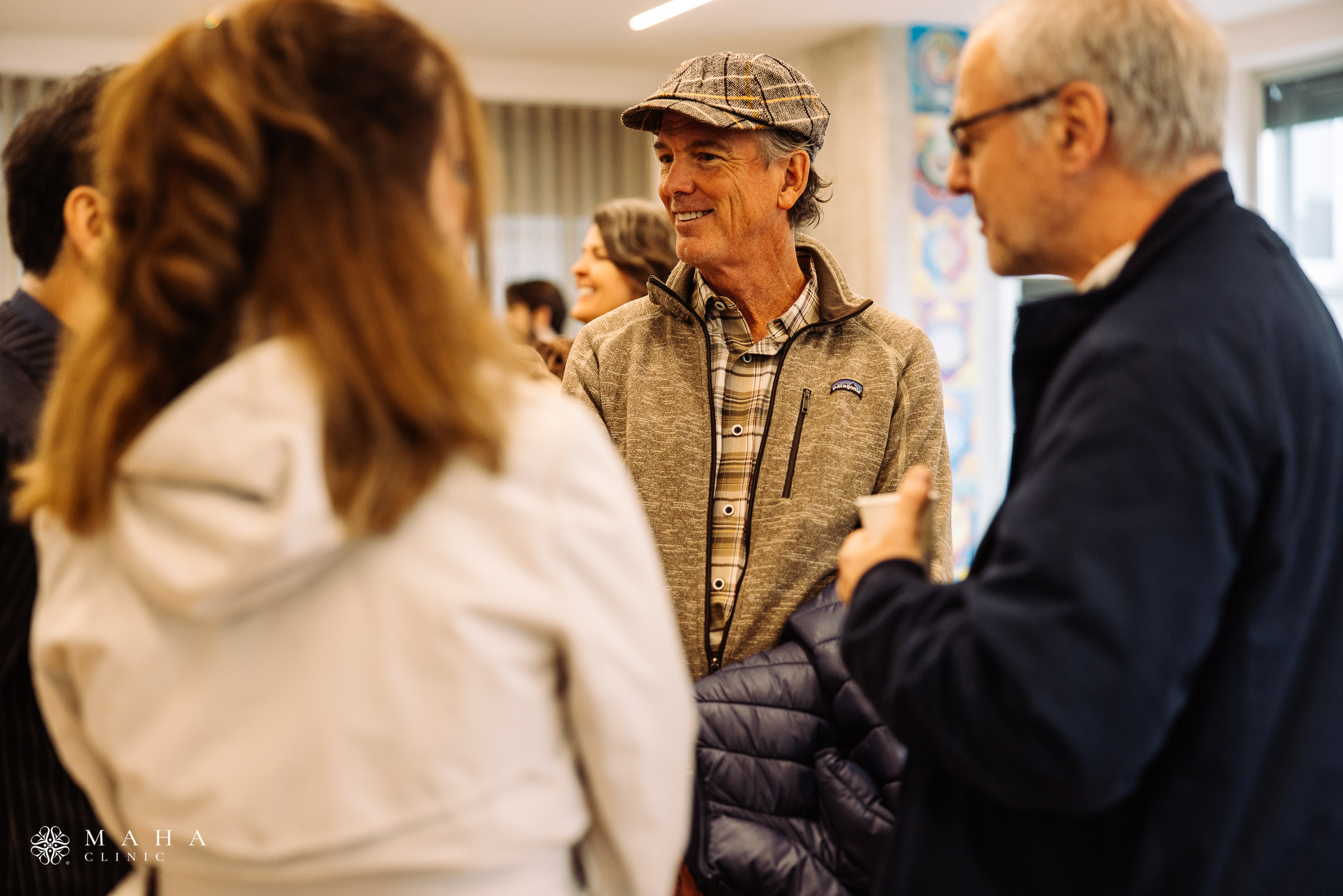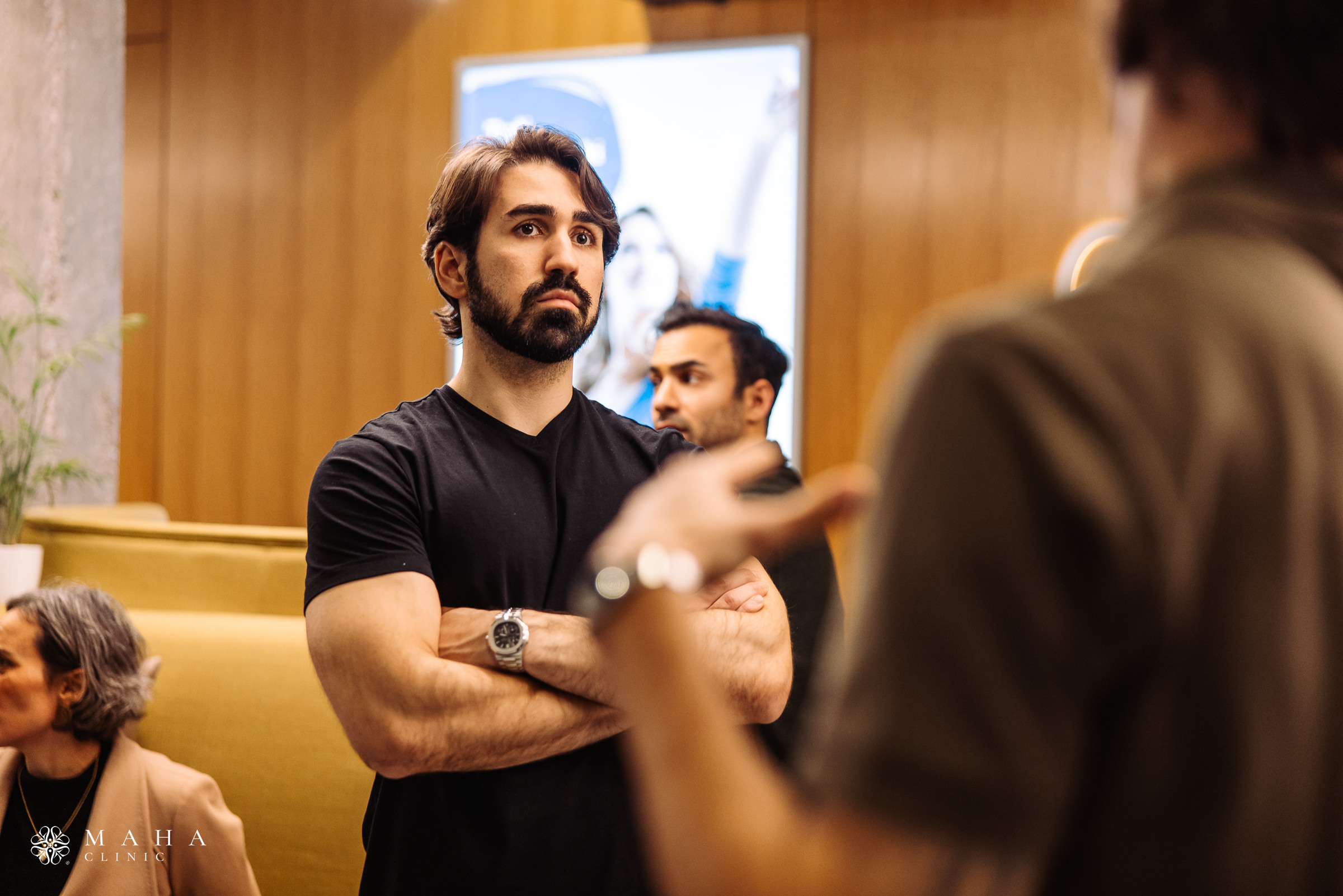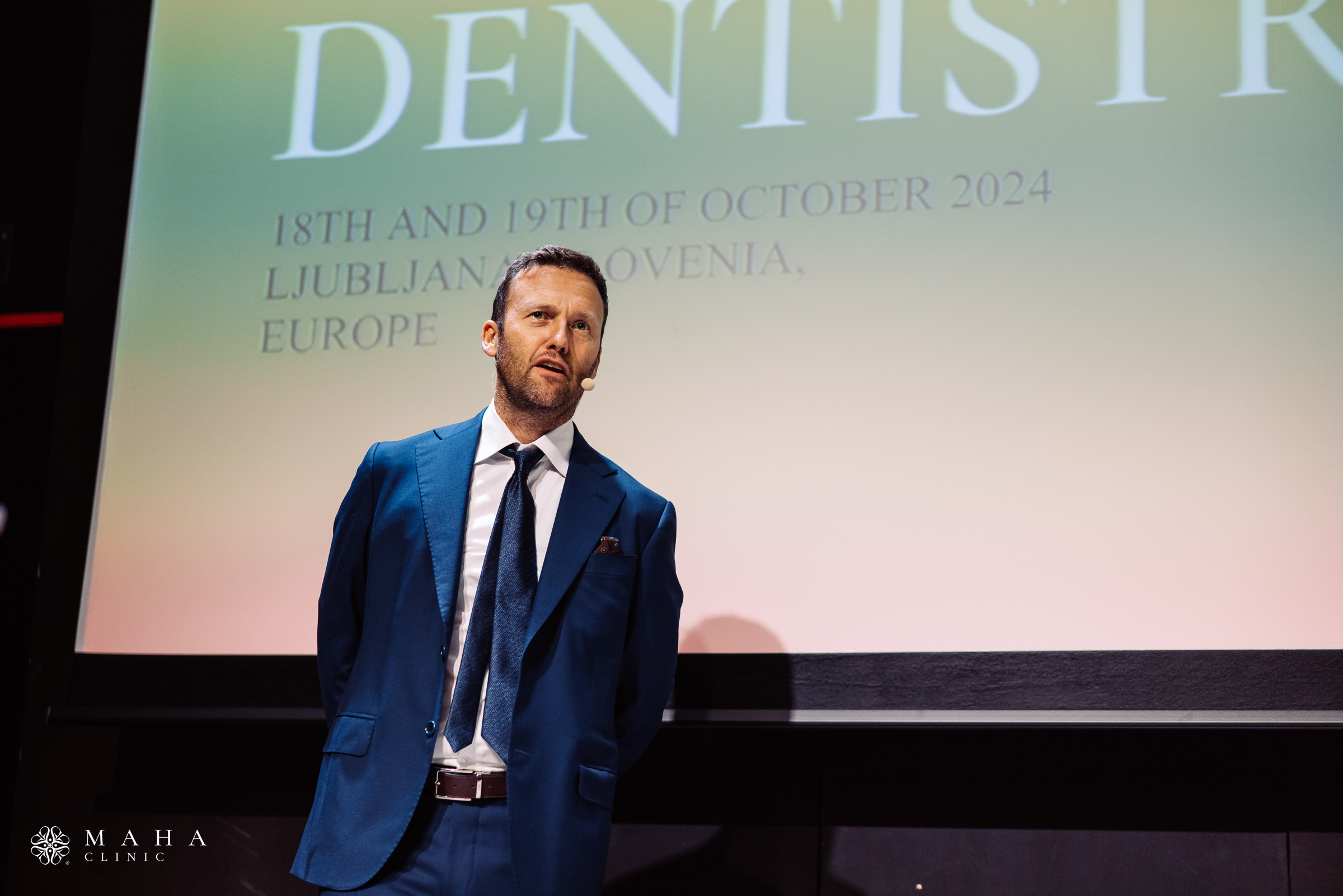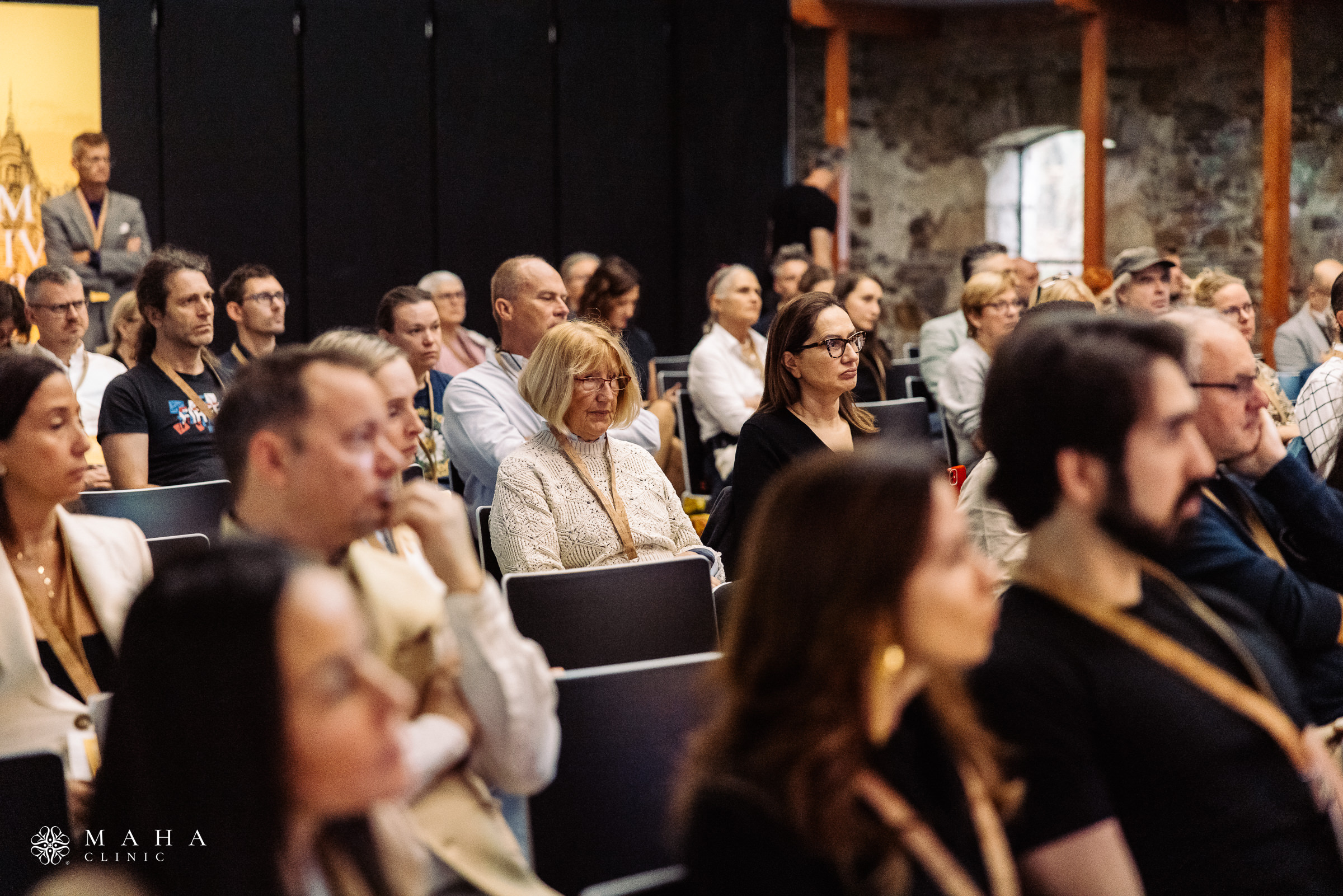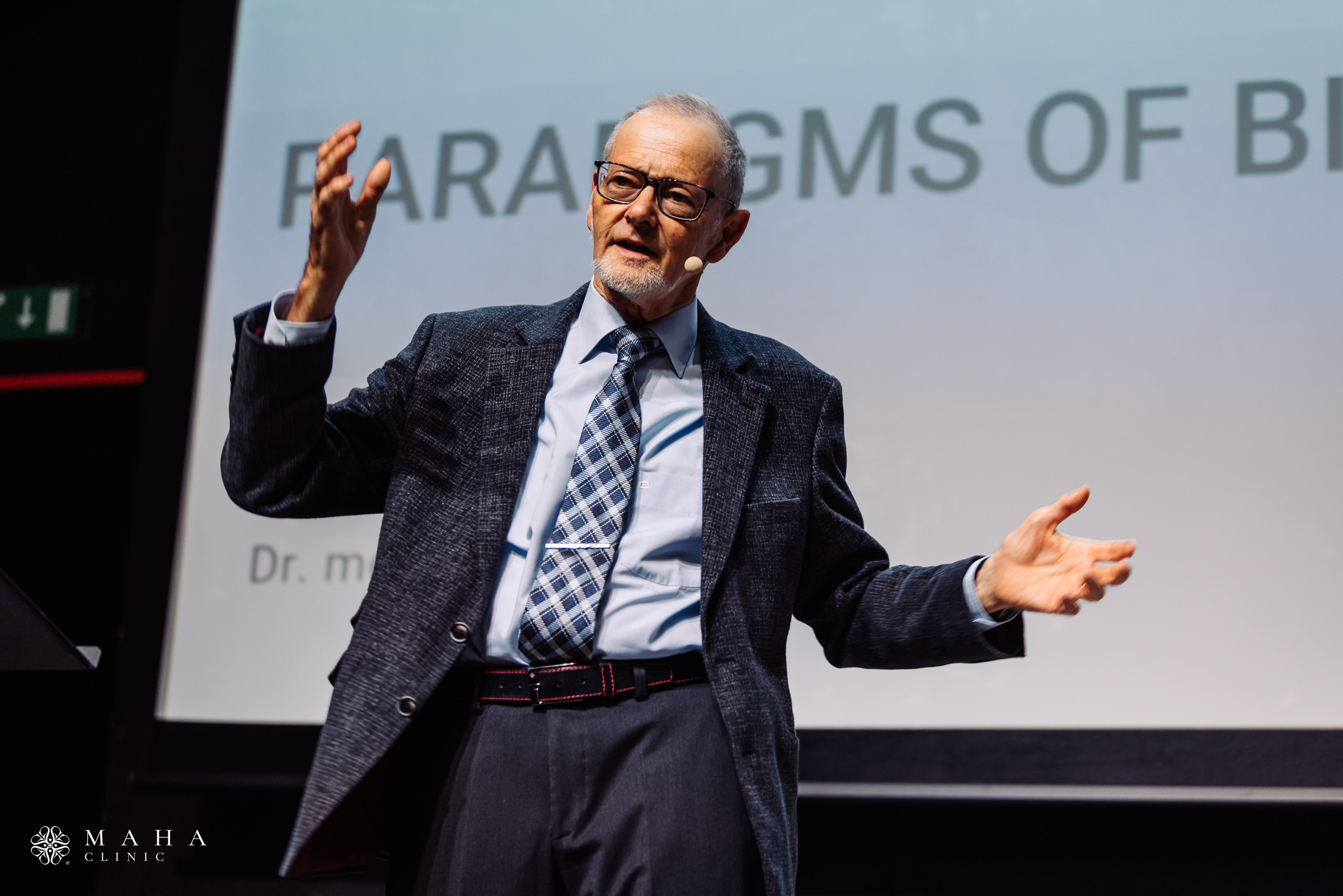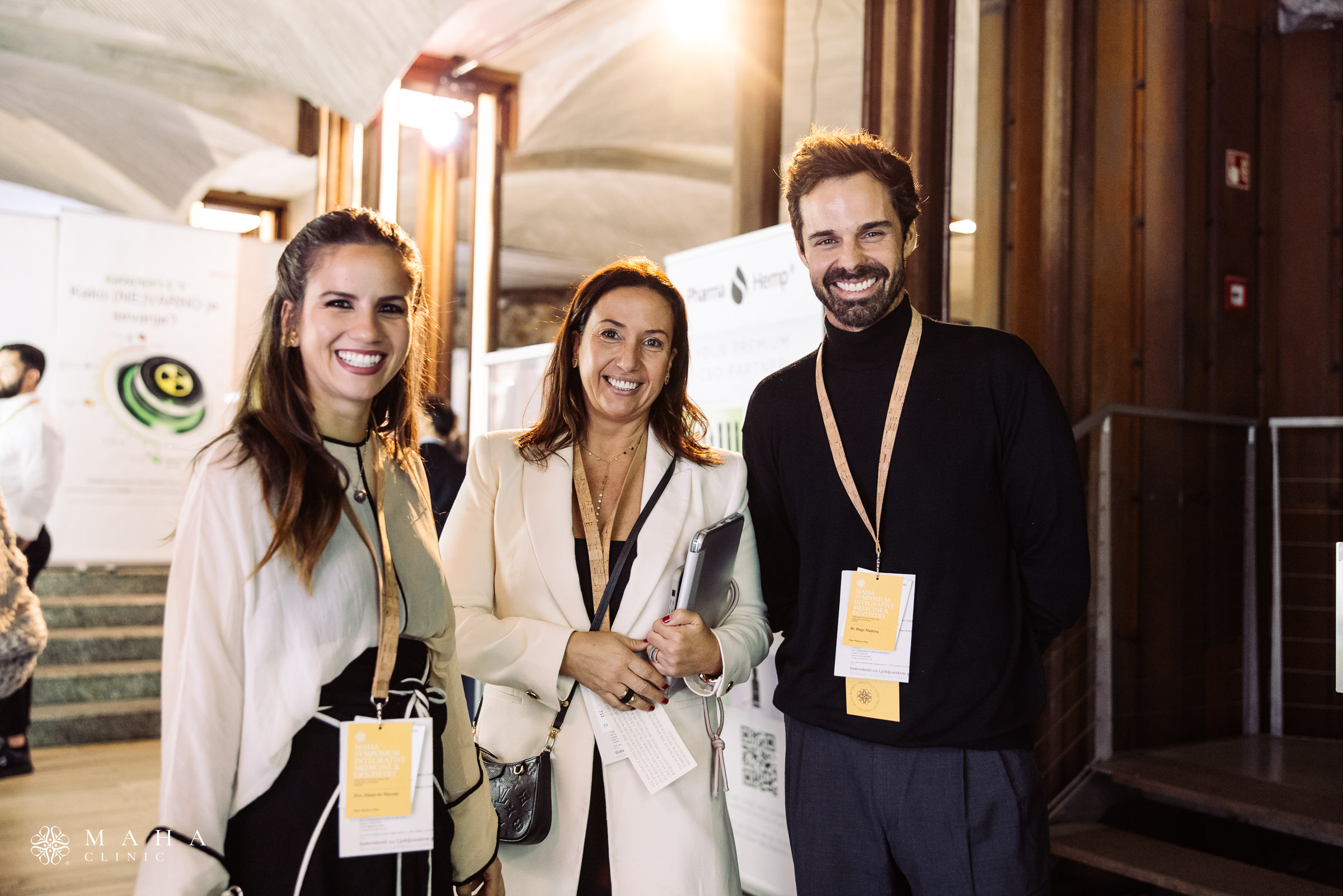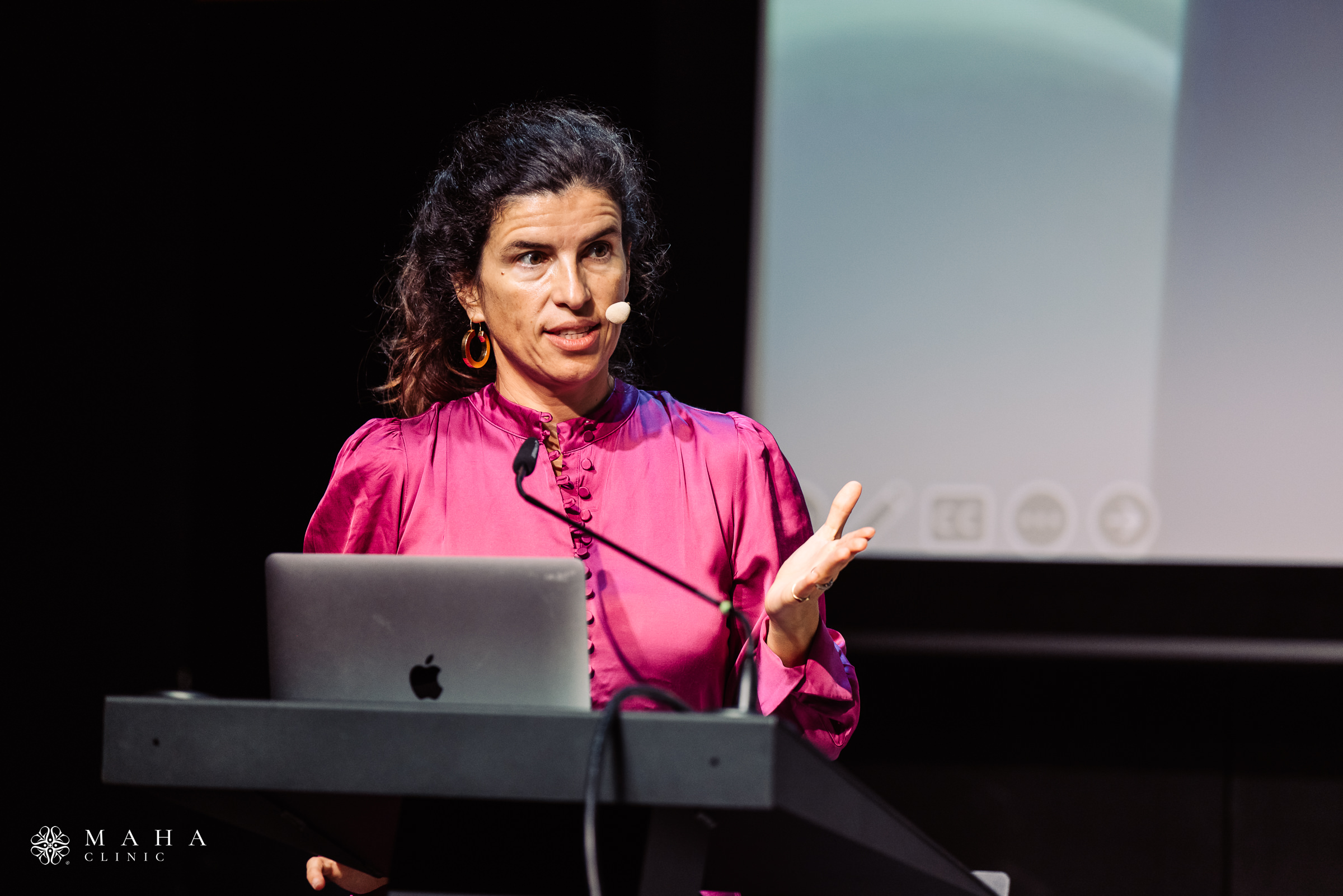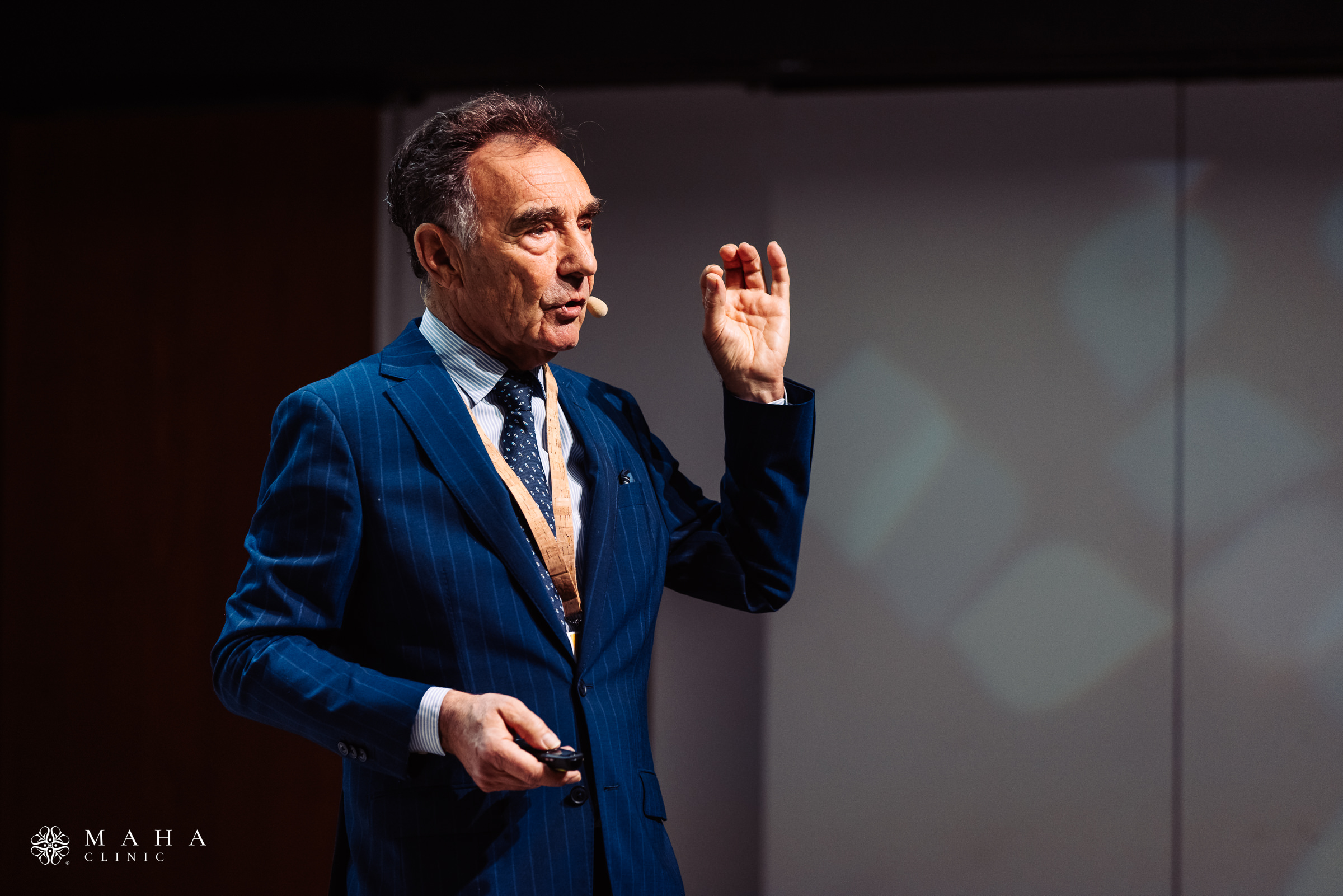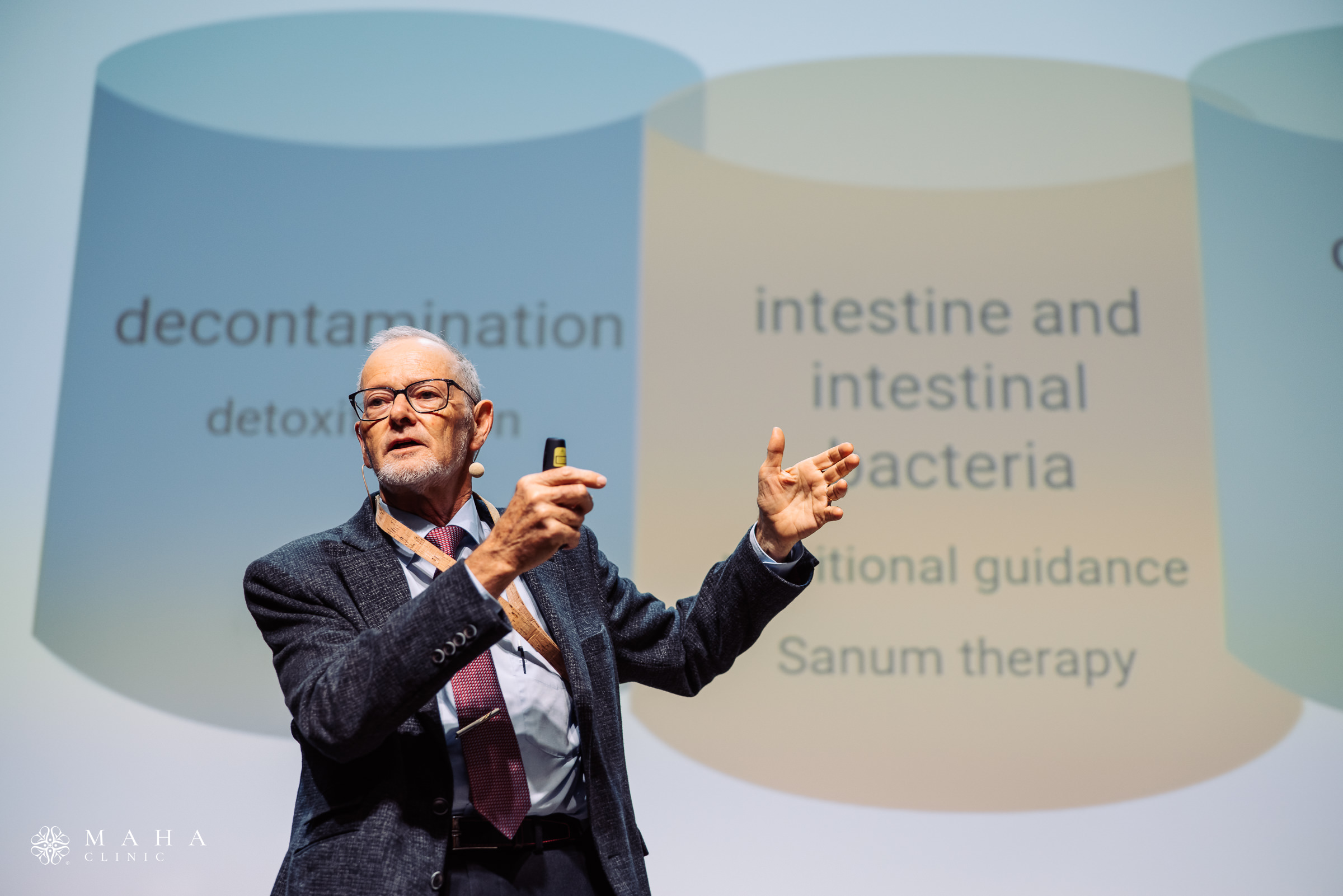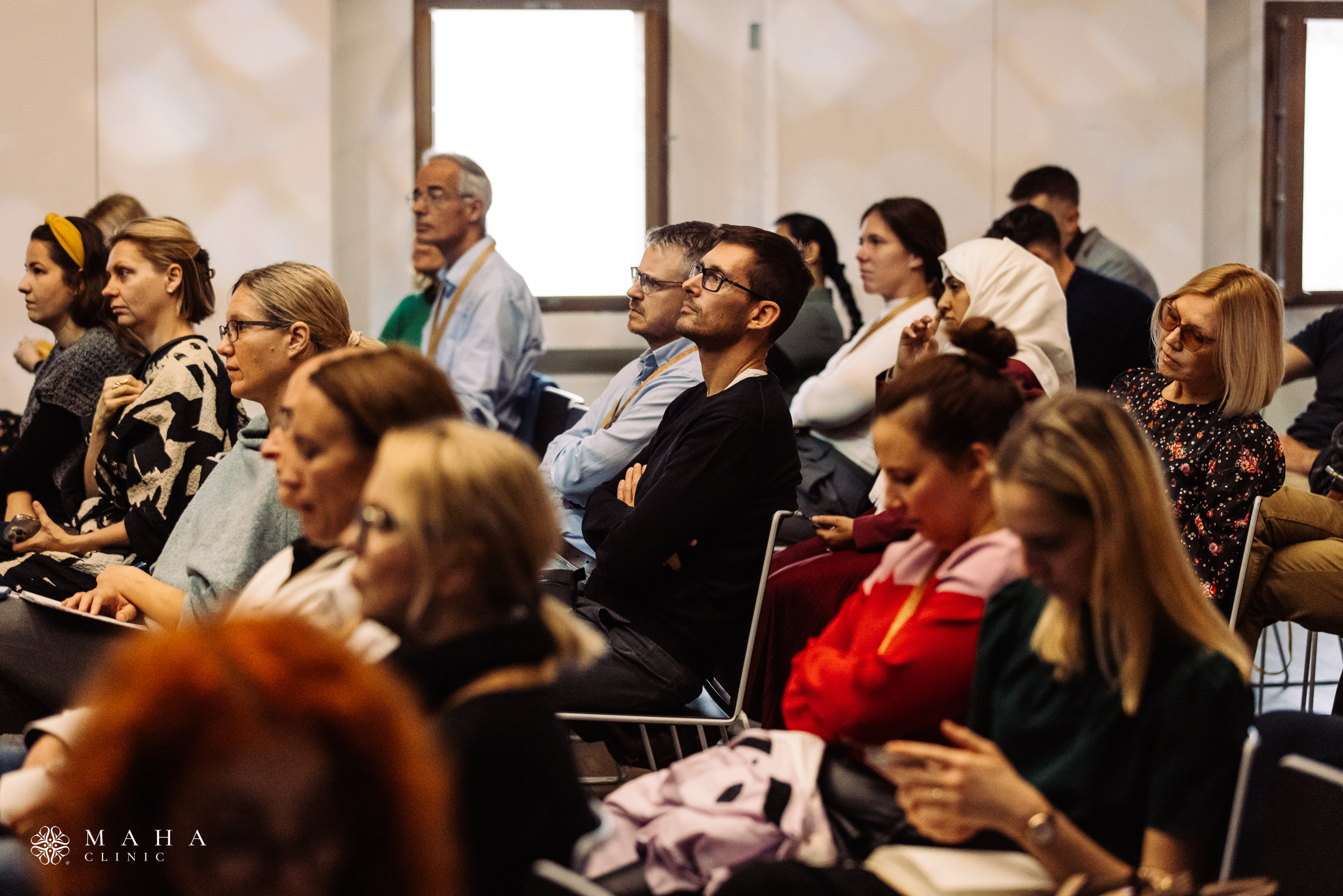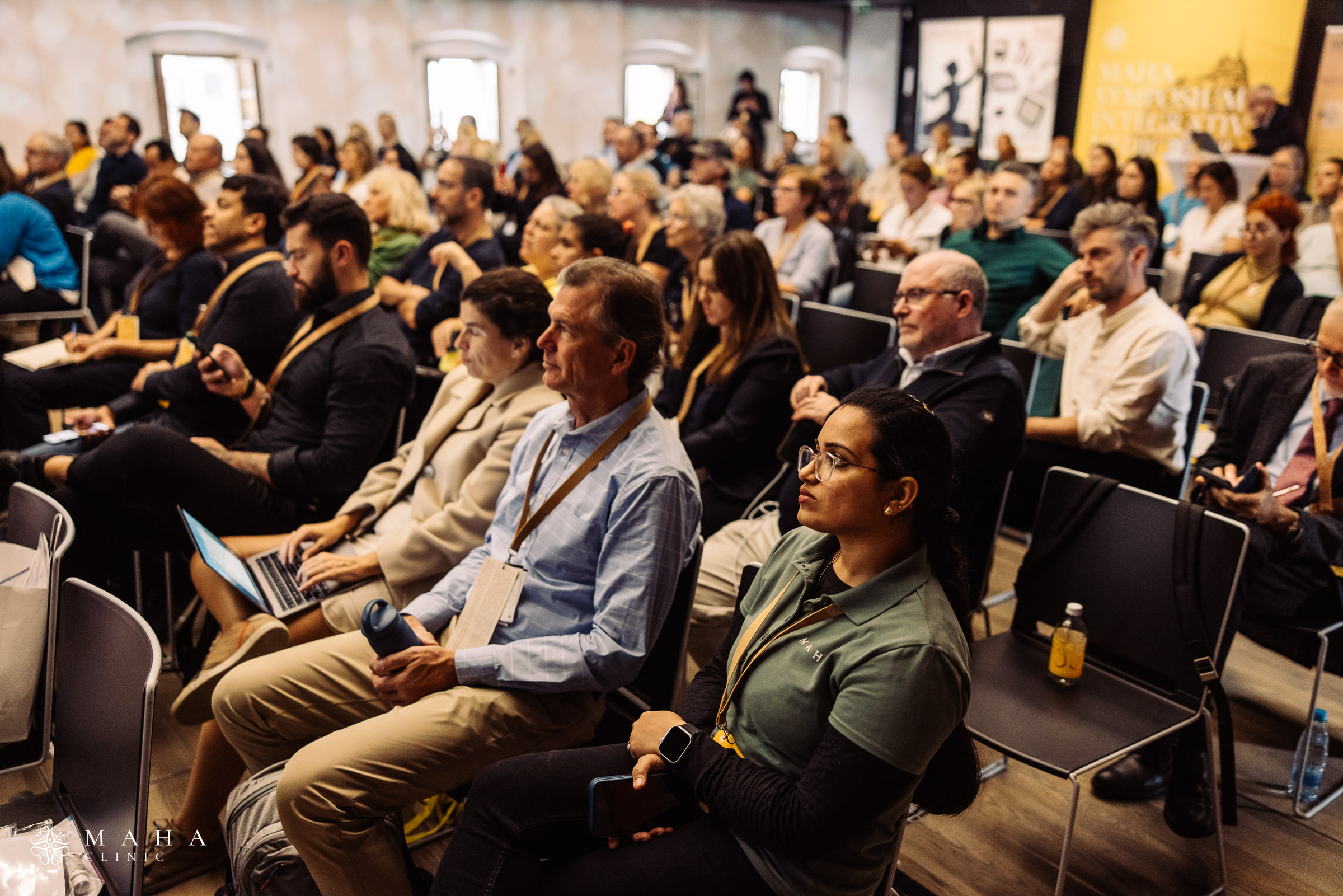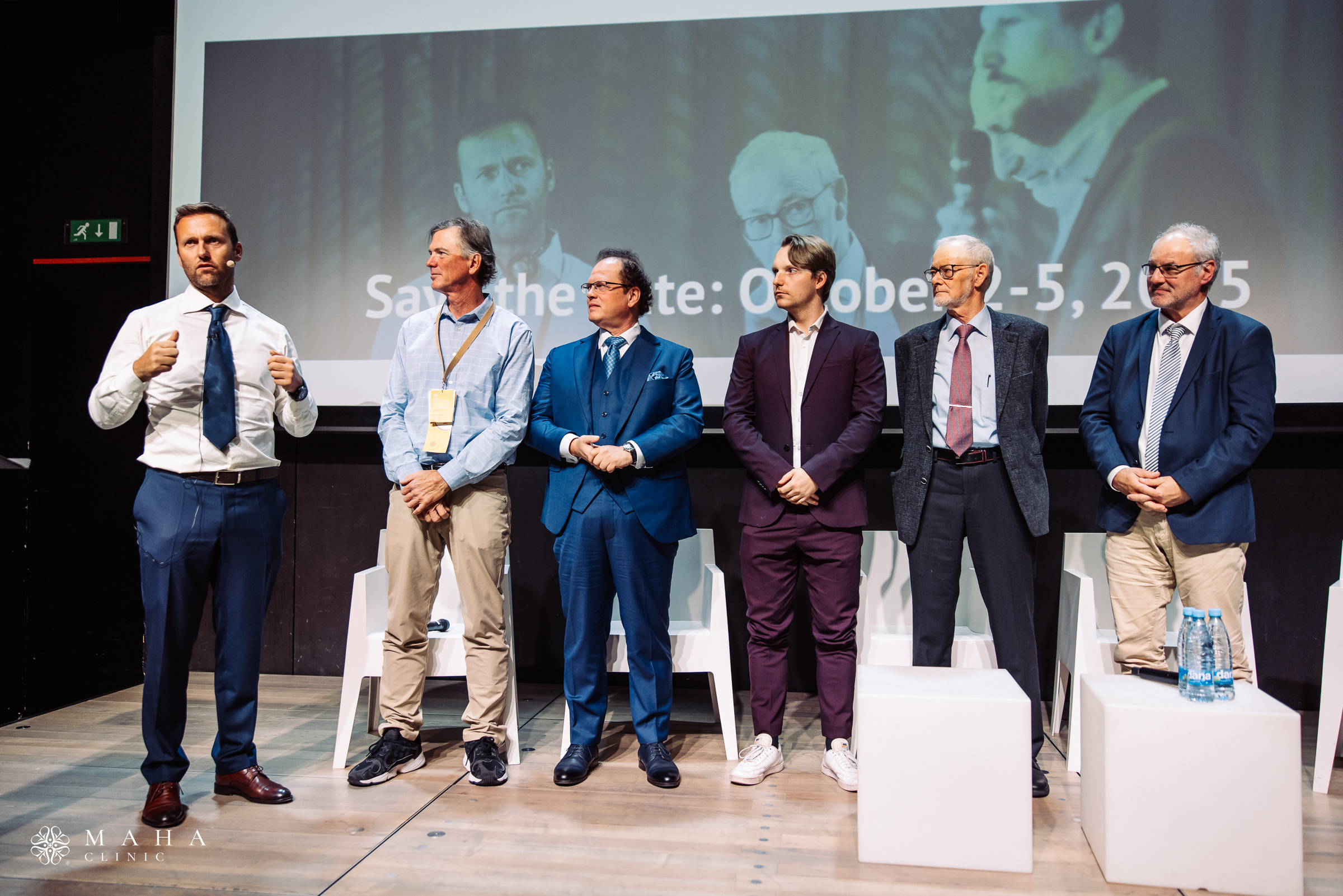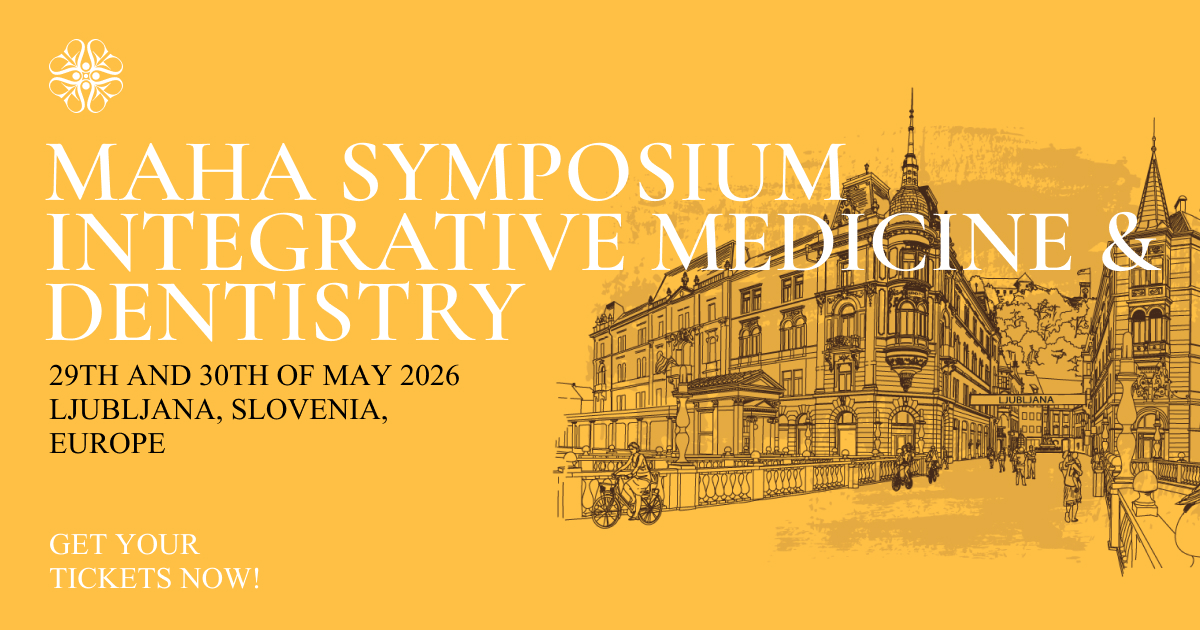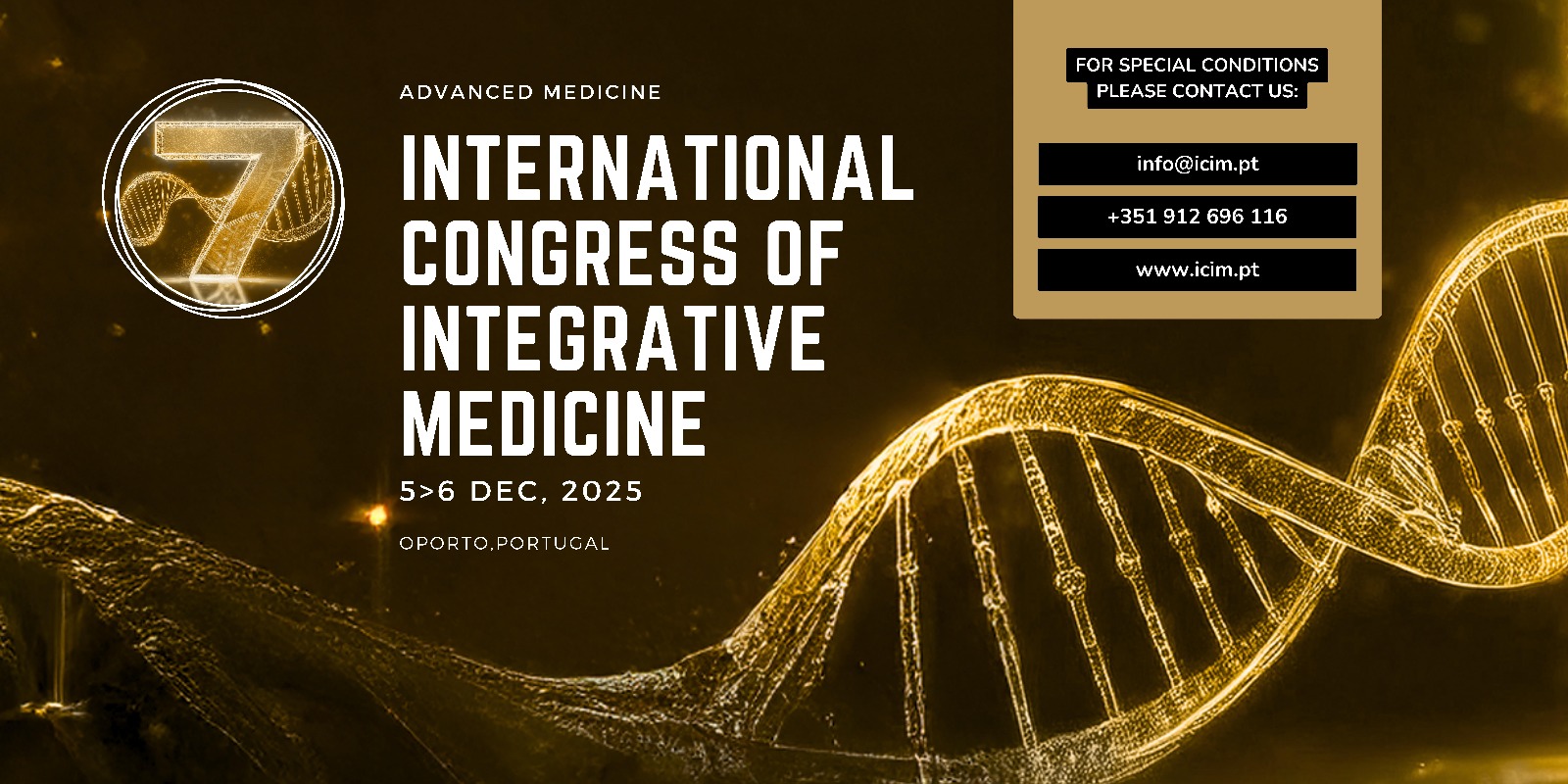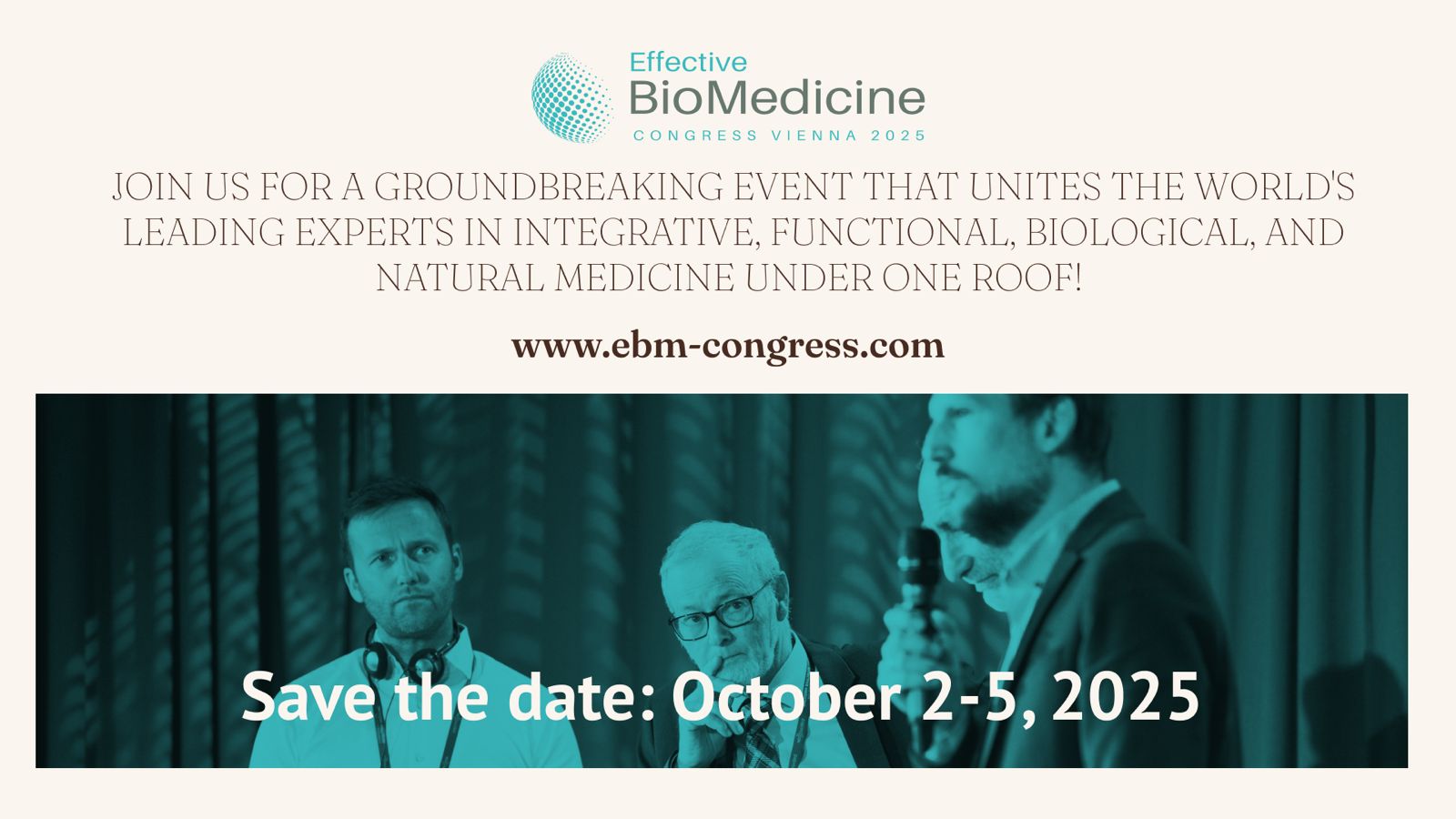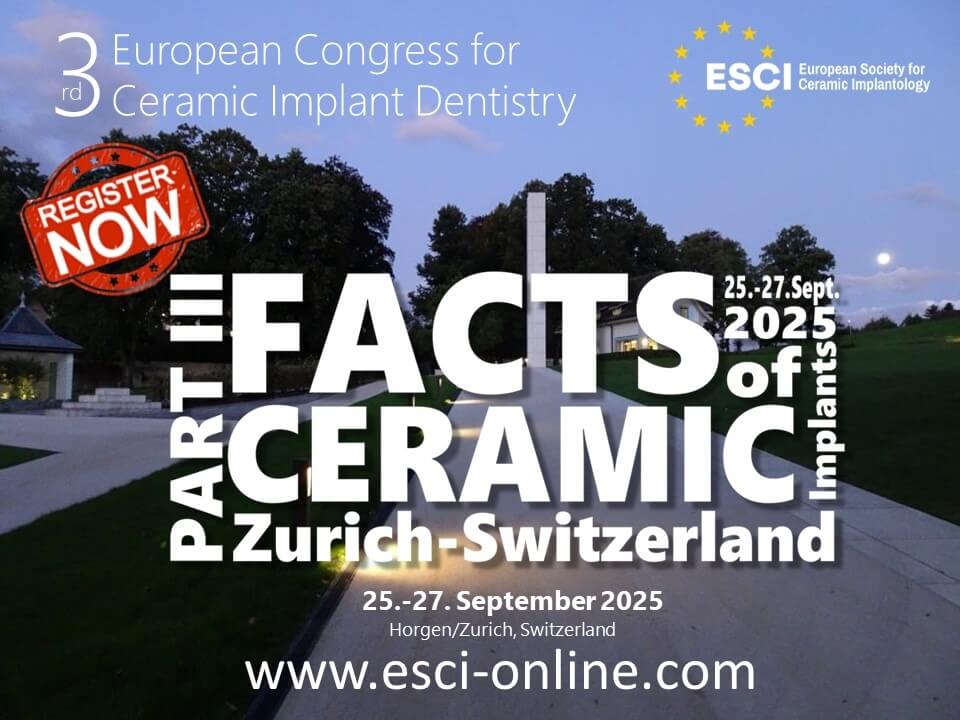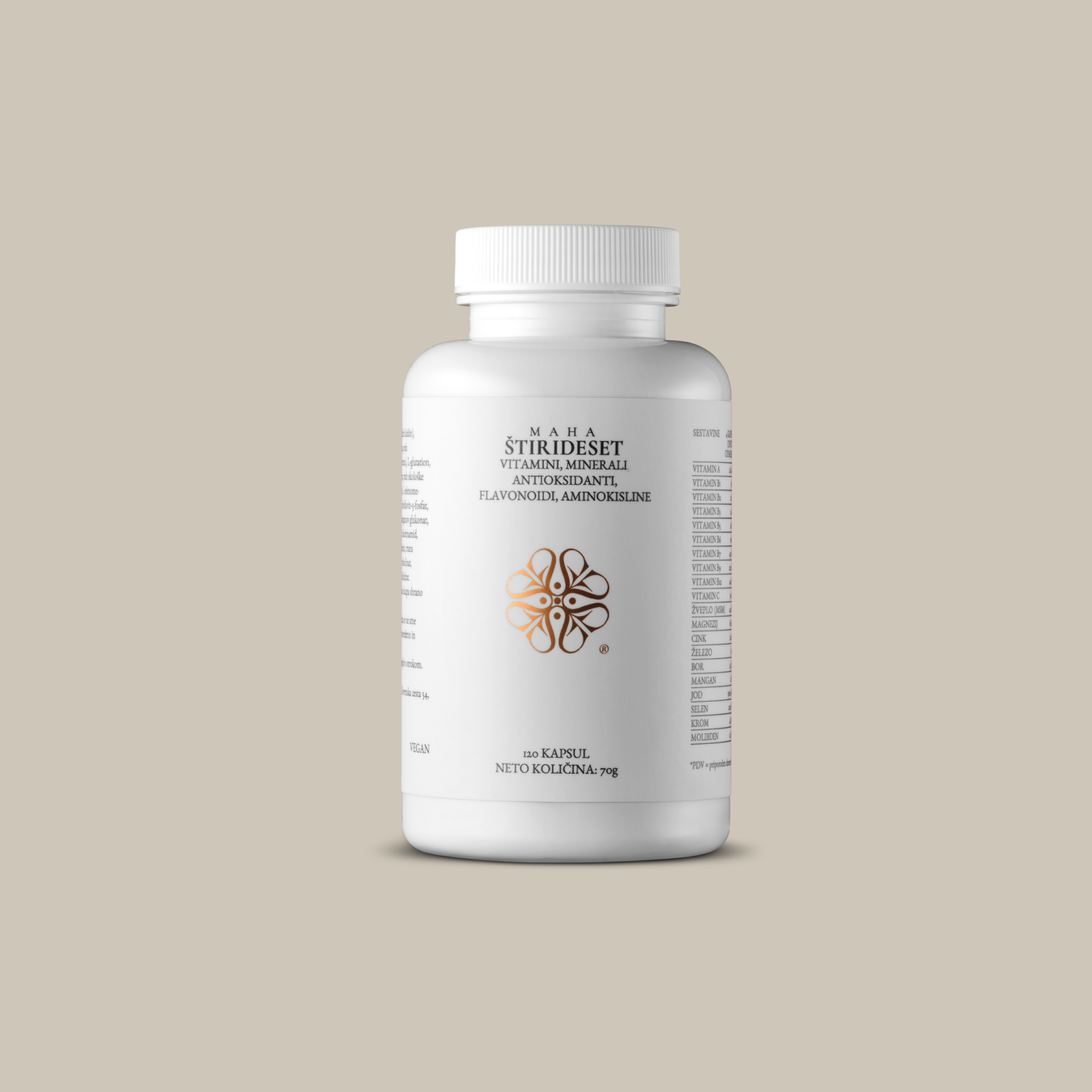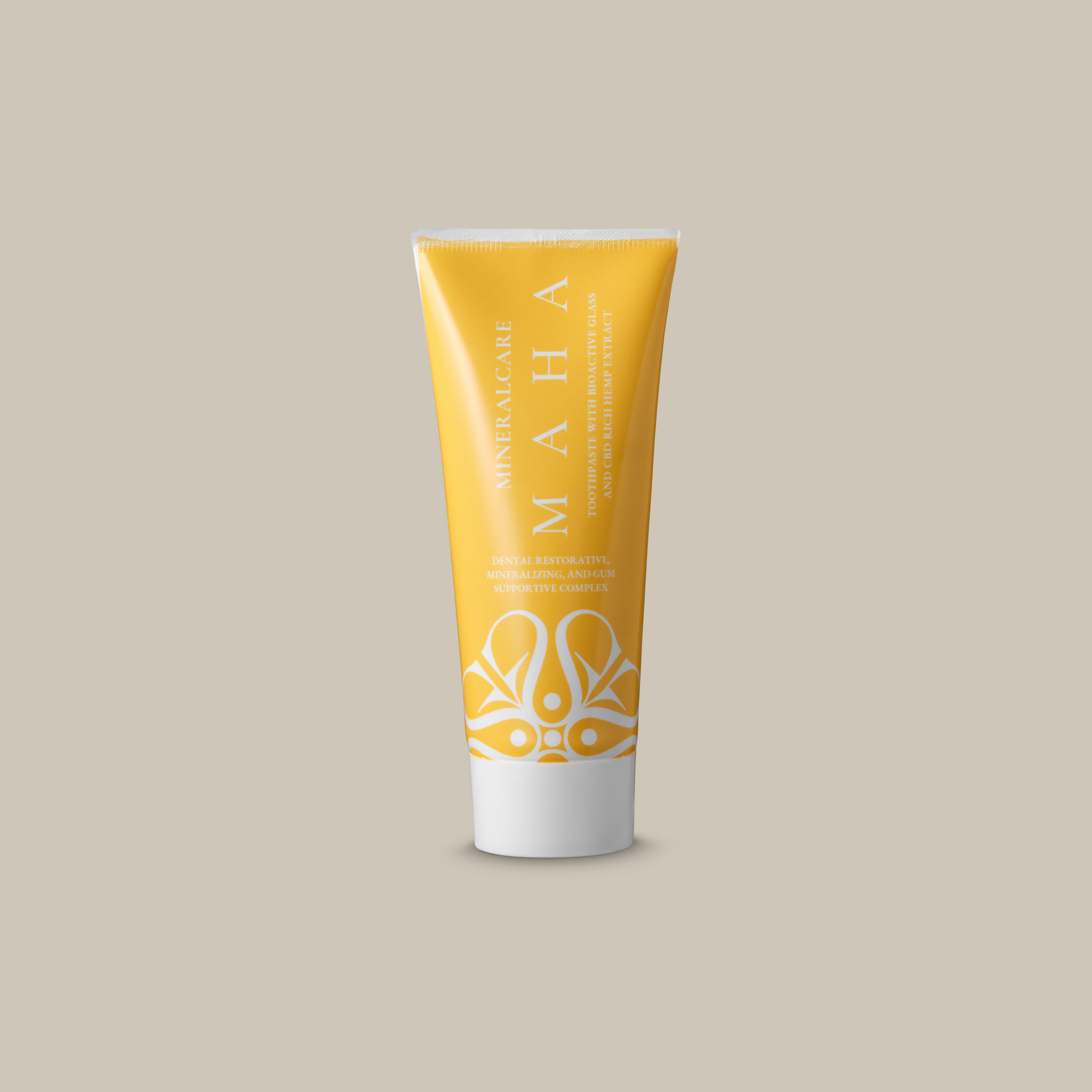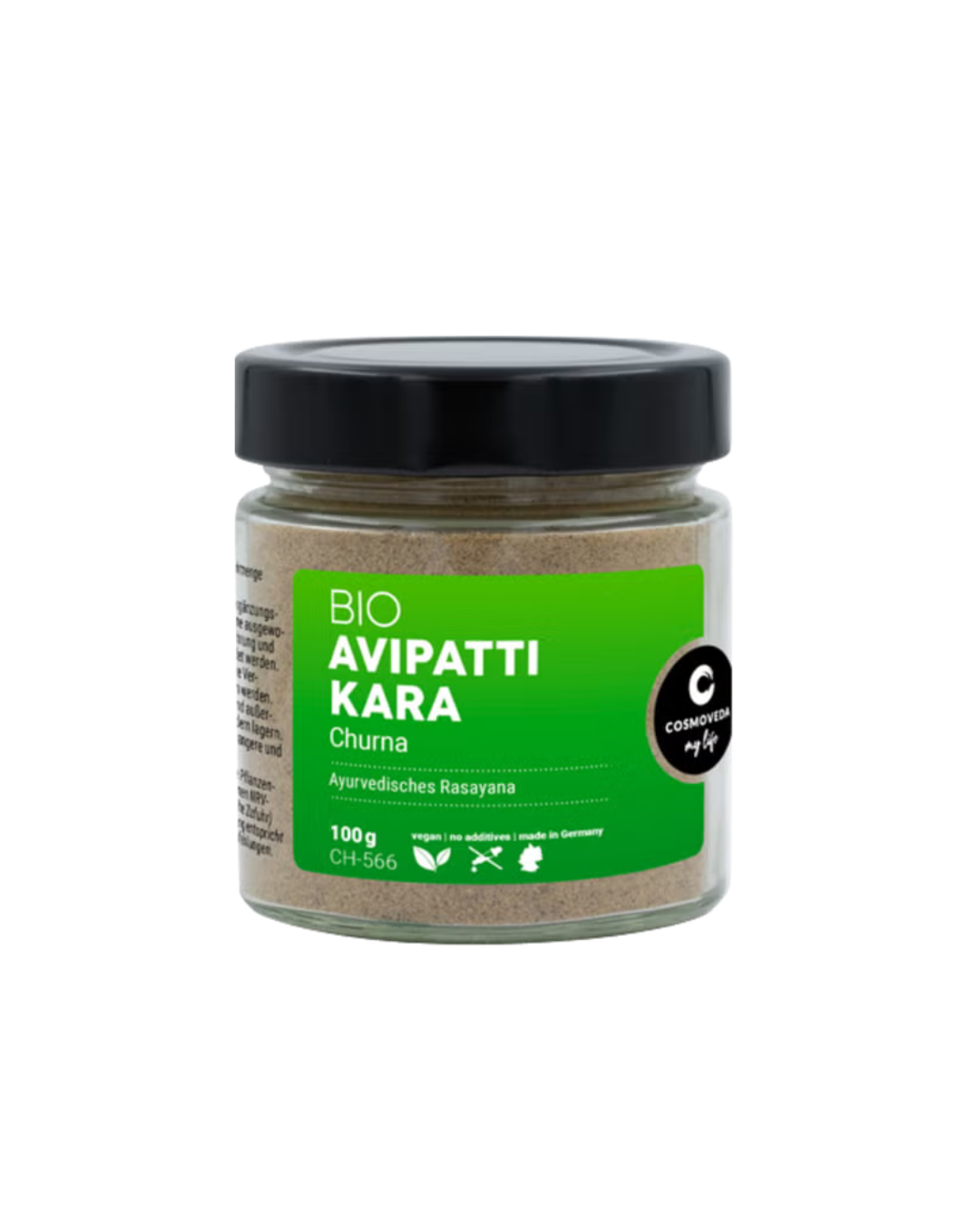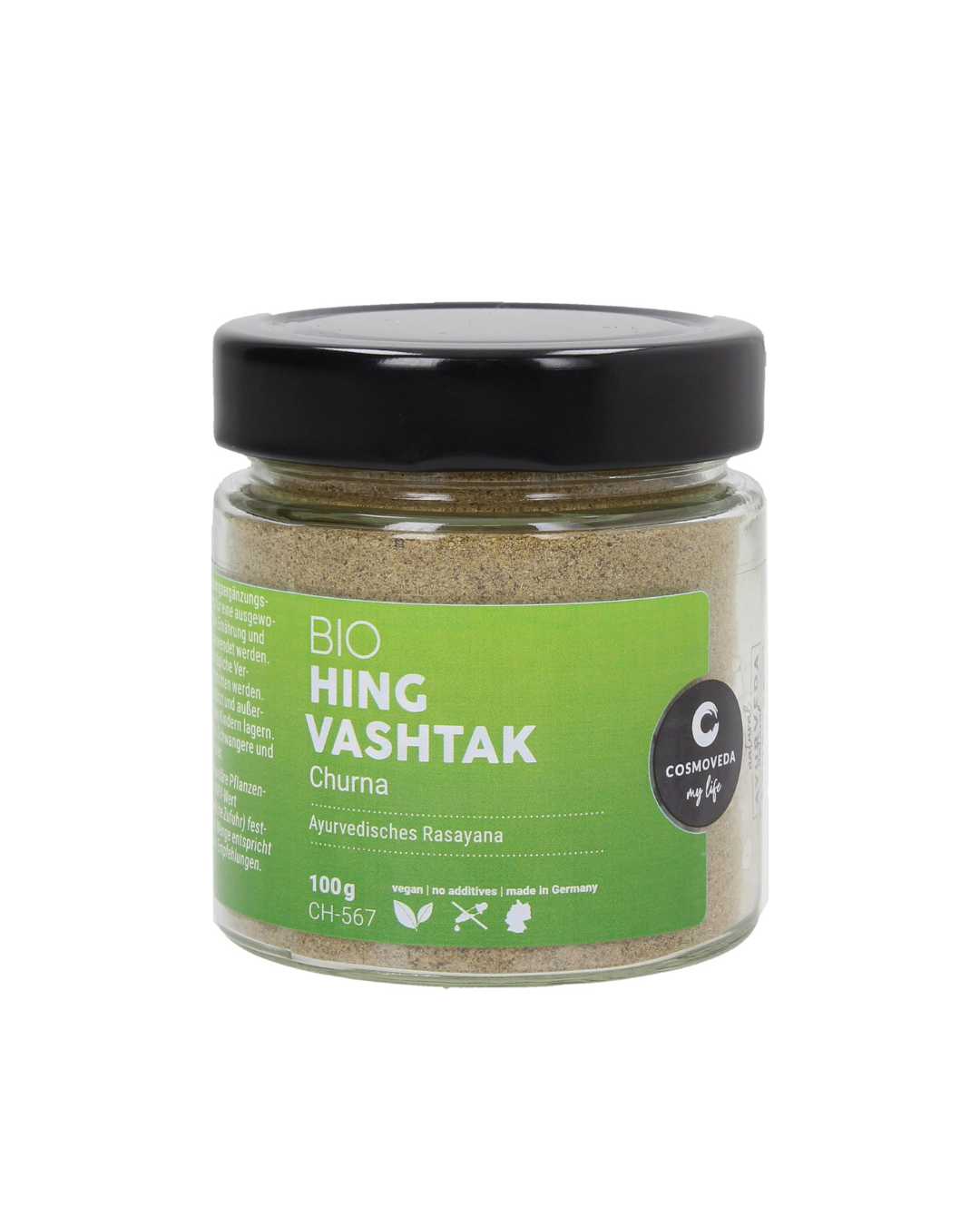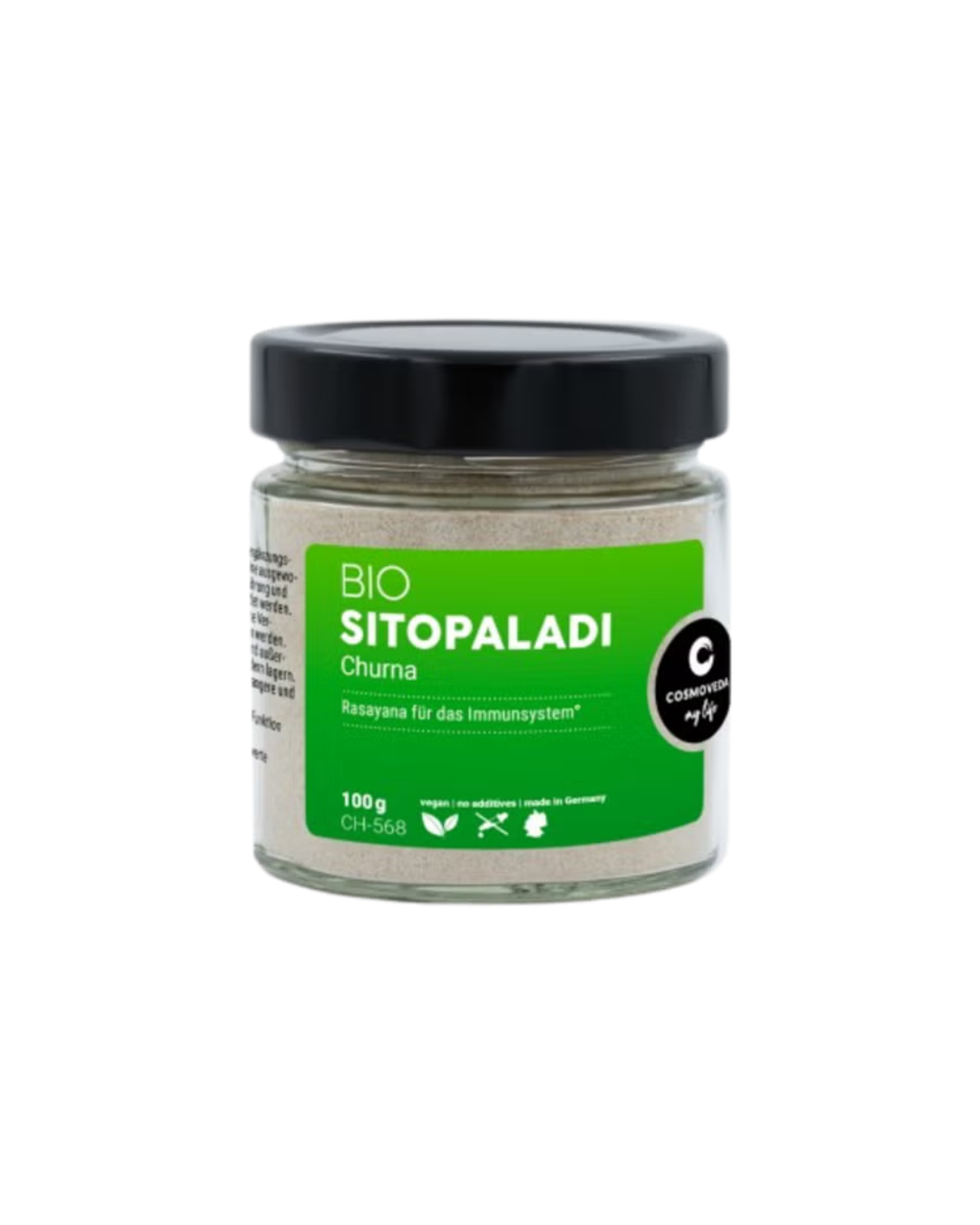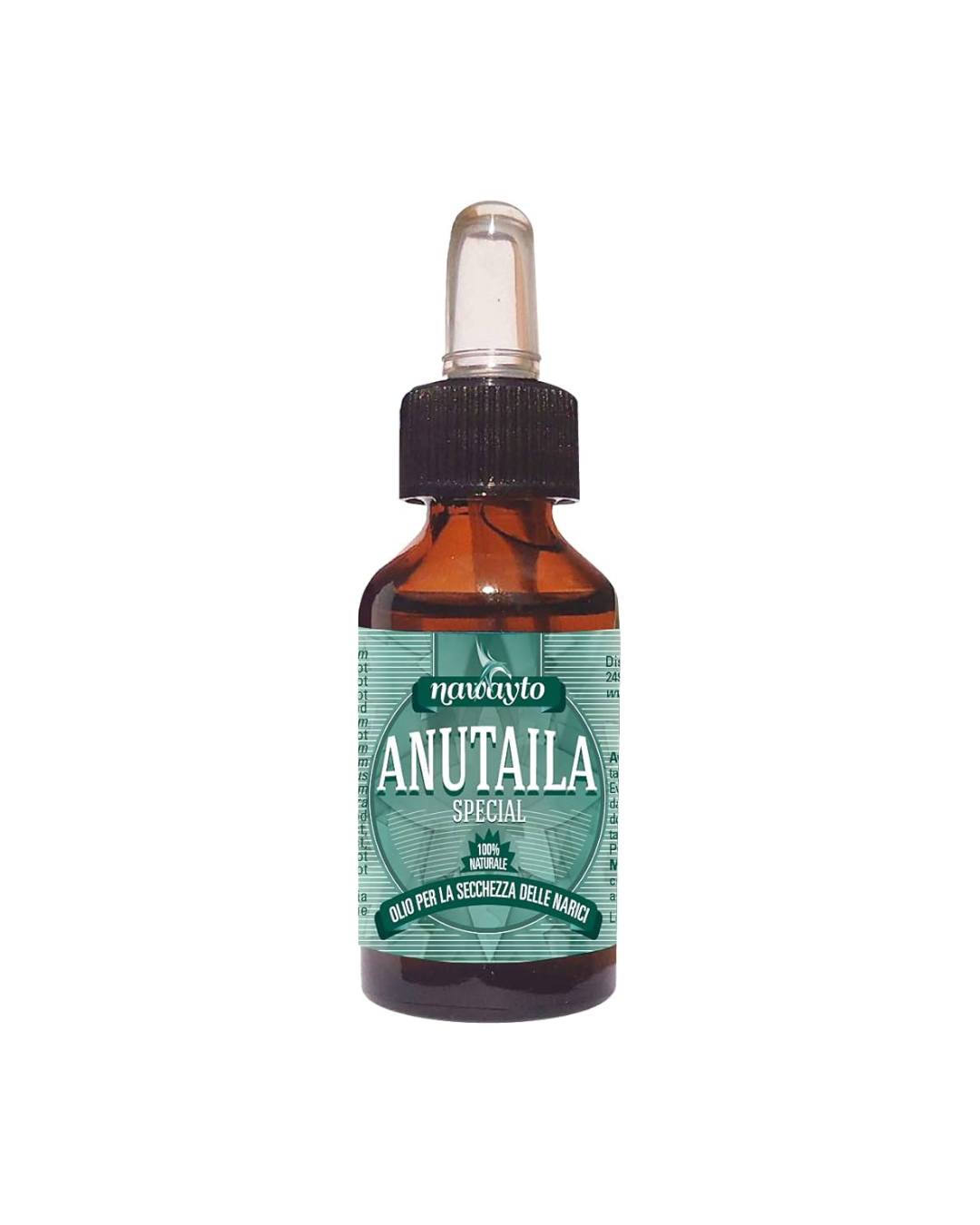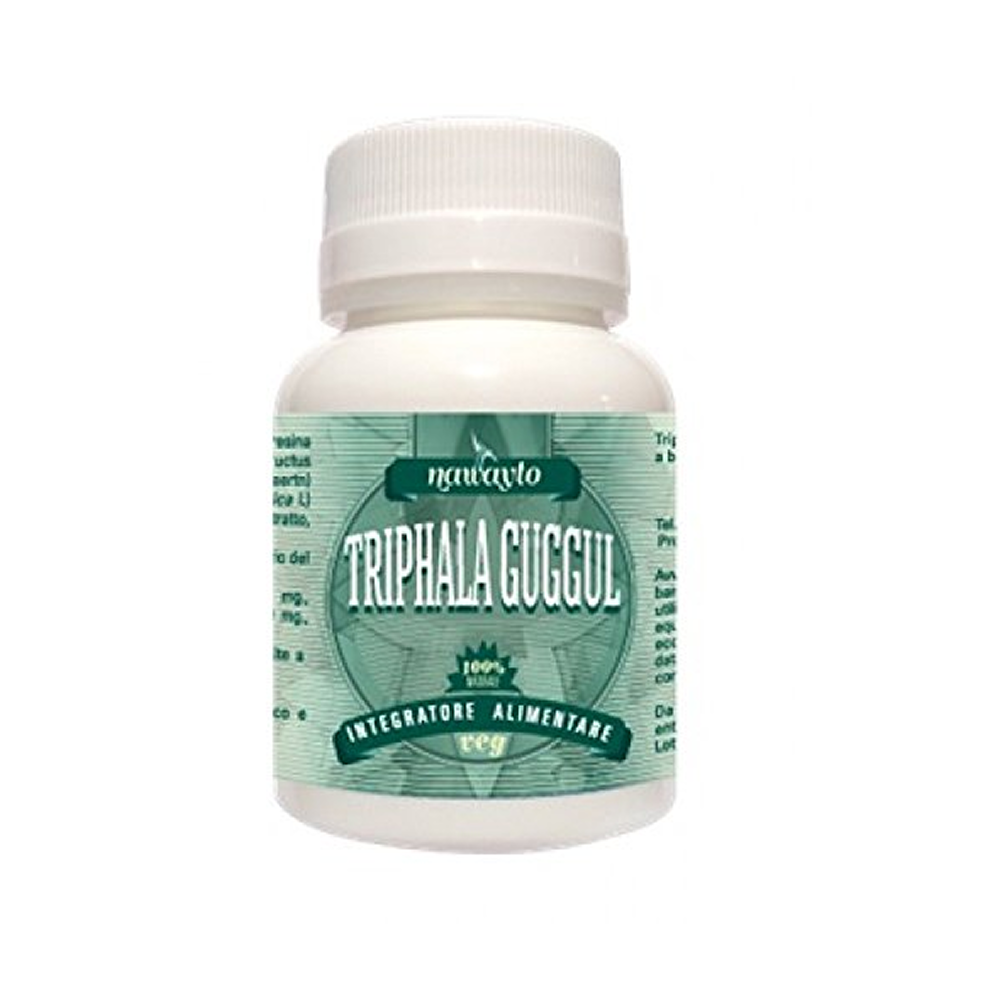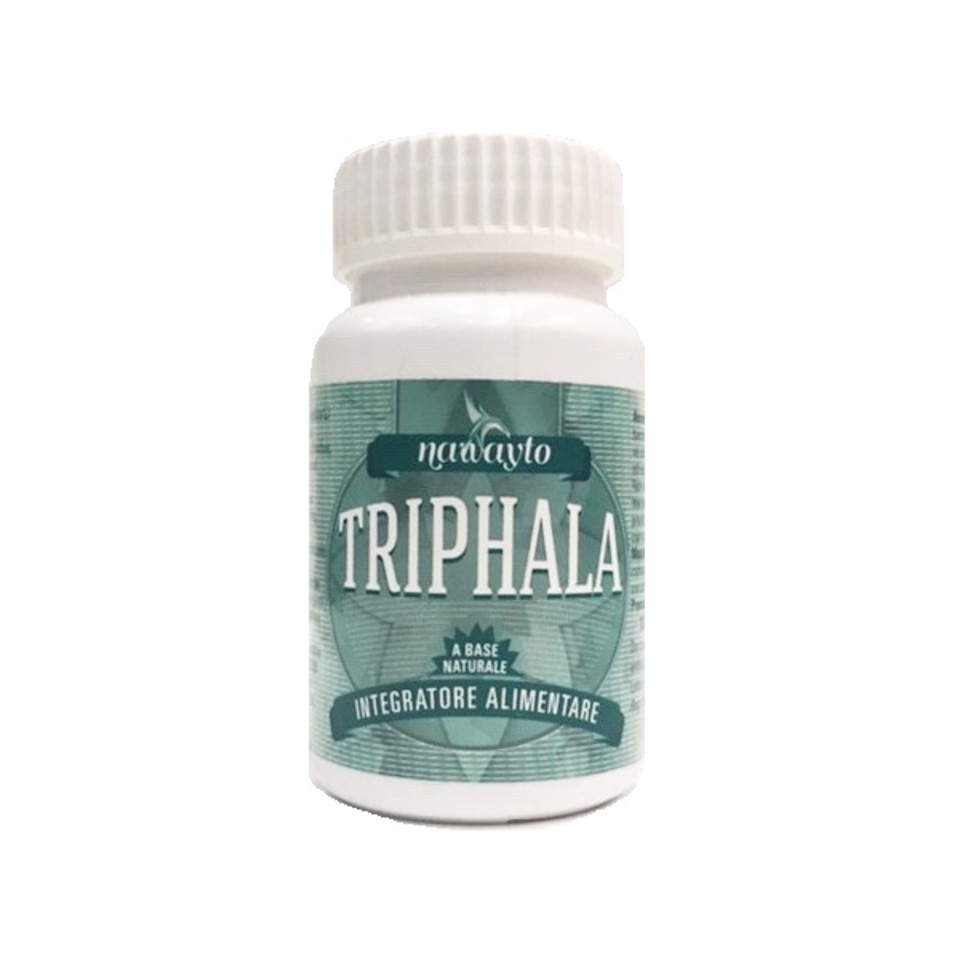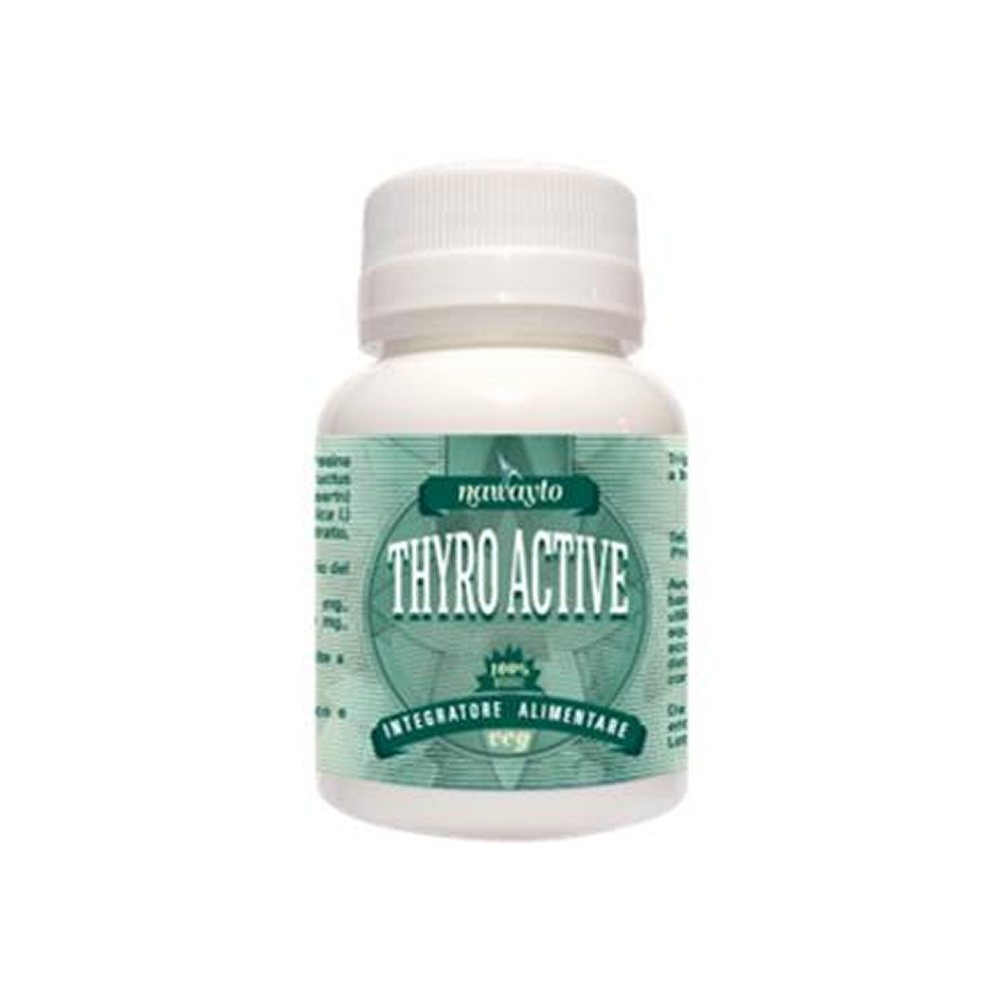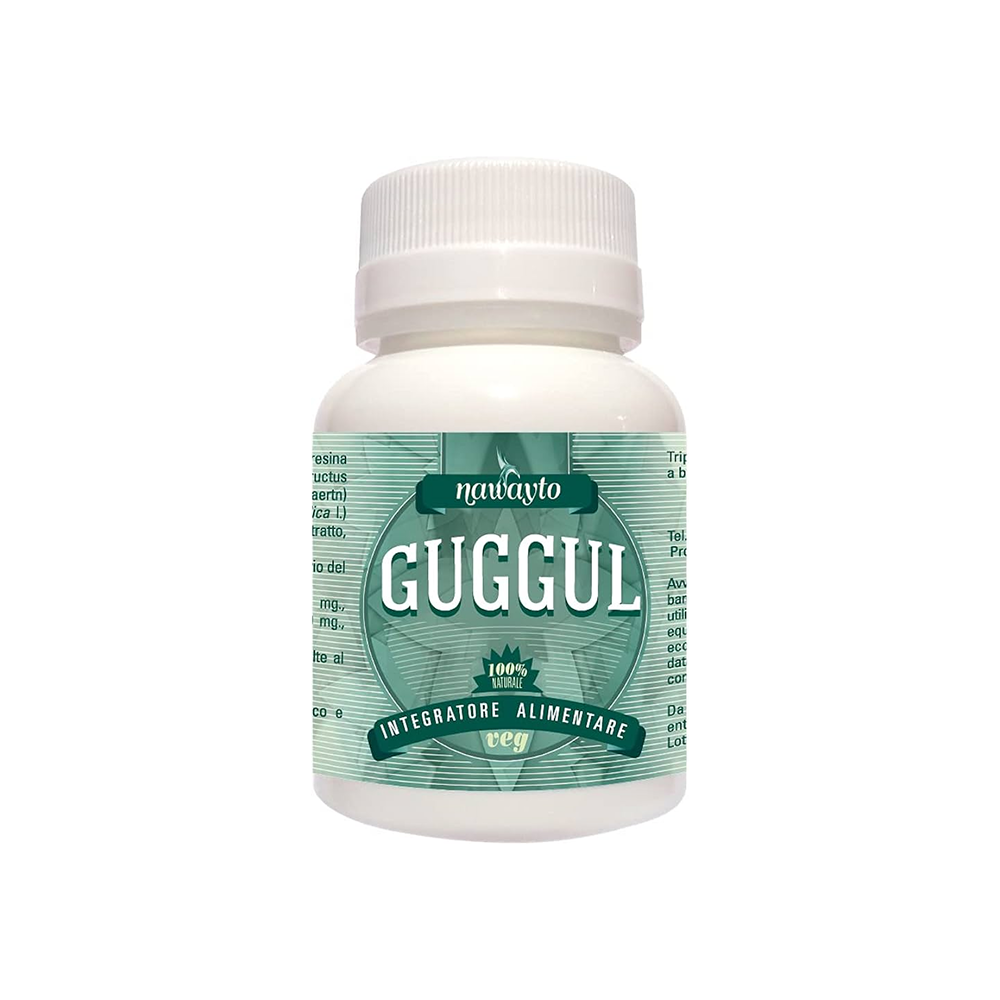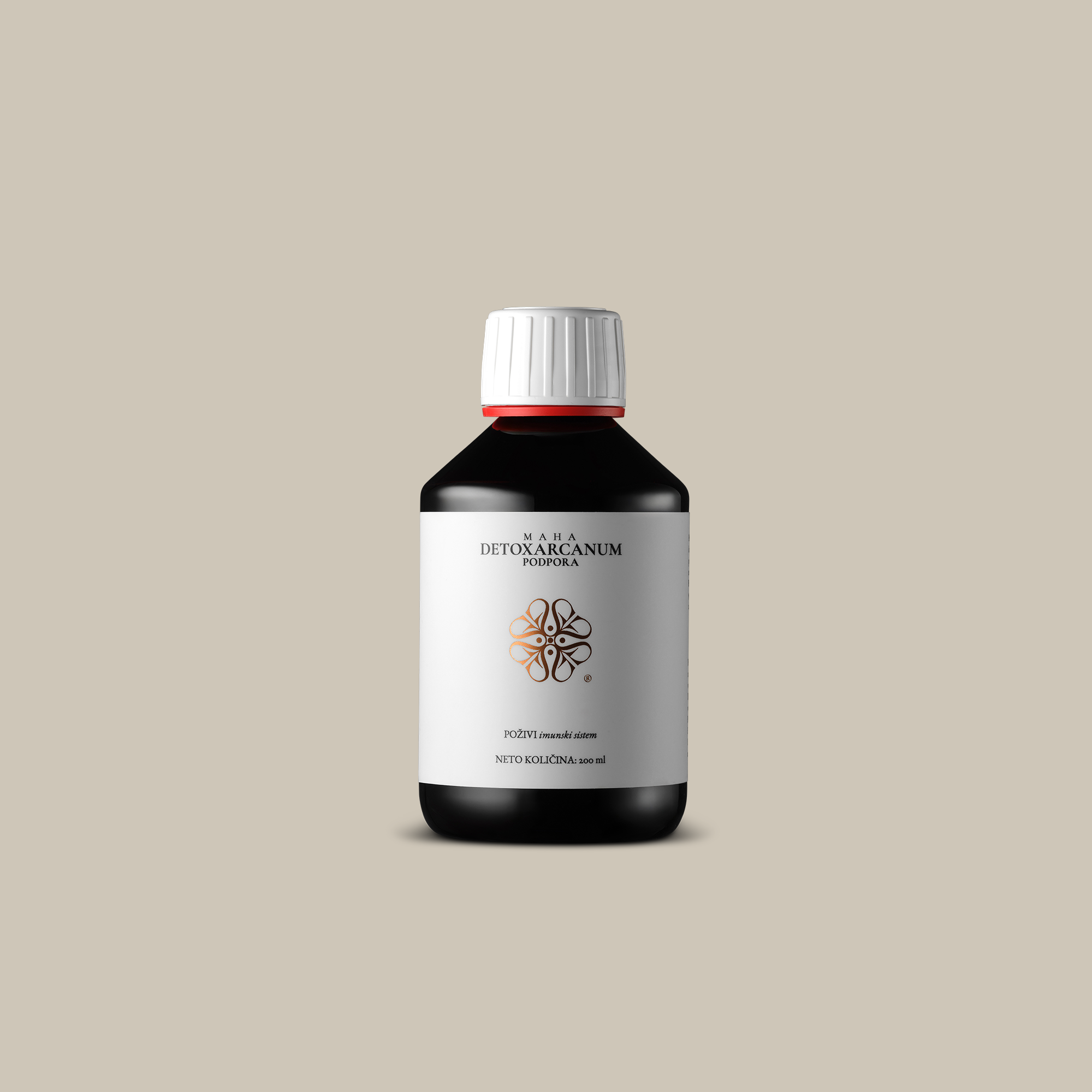institute
Advance your expertise in integrative medicine & dentistry. The maha institute offers immersive, fiveday training programs designed for healthcare professionals who want to bridge advanced medical knowledge with cutting-edge dental and integrative practices. Maha institute for integrative medicine & dentistry. Choose from three tailored curricula—Basic Dental, Advanced Dental, and Non-Dental—to deepen your understanding of systemic inflammation, precision diagnostics, and patient-centered protocols. Each course combines evidence-based lectures with interactive case discussions for immediate clinical application.
5-DAY BASIC COURSE
(FOR DENTISTS)
14.01., 15.01., 16.01. – online (part1)
12.02., 13.02. – live (part2)
A foundational program for dentists seeking to integrate modern medical insights into everyday practice. Over five intensive days, participants learn the essentials of integrative dentistry—systemic inflammation, biological treatment concepts, and evidence-based protocols—through expert lectures and hands-on case discussions. Ideal for professionals new to the integrative approach or looking to refresh core knowledge.
5-DAY ADVANCED COURSE
(FOR DENTISTS)
04.03., 05.03., 06.03. – online (part1)
08.04.,09.04 – live (part2)
An intensive program for experienced dentists ready to master complex integrative concepts and clinical techniques. This course explores advanced osteoimmunology, infectious versus aseptic inflammation, and key diagnostic markers (e.g., tissue and serum CCL5, Th1/Th2 balance). Through in-depth lectures and interactive case presentations, participants refine treatment planning for challenging cases and learn to implement evidence-based protocols at the highest professional level.
5-DAY DENTAL COURSE
(FOR NON-DENTAL MEDICAL PROFESSIONALS)
This intensive program introduces physicians and other healthcare providers to the core principles of biological and integrative dentistry. Over five days, participants explore the links between oral inflammation and systemic disease, learn key diagnostic markers, and gain practical strategies to collaborate with dental specialists in patient care. The course bridges medical and dental perspectives, enabling attendees to incorporate oral-systemic insights directly into their own clinical practice.
MAHA
Slovenska cesta 54, 1000 Ljubljana, Slovenija, Europe
Tel. +386 51 248 888
email: info@maha.clinic
Mon, Tue, Wed: 8:00 – 15:00
Thu: 12:30 – 20:00
Fri: 8:00 – 13:30
© Copyright 2024 – Maha / made by visualbraingravity
Maha Symposium 2026
Maha Symposium INTEGRATIVE MEDICINE & DENTISTRY
29th and 30th
of May
2026
Ljubljana Castle, Slovenia,
Europe

Experience Ljubljana Castle
After the resounding success of the MAHA Symposium 2024, we return in 2026 to the historic Ljubljana Castle — this time in the larger and more impressive Estates Hall.
The program opens with a MAHA Welcome Reception & Clinic Tour on Thursday, May 28, followed by two full days of lectures, exchange, and collaboration on Friday and Saturday, May 29–30, 2026.
A highlight of the gathering will be Friday night, when the Slovenian band Josip Brass gives a private concert in the lecture hall, creating an atmosphere of inspiration and community.
Experience Ljubljana Castle. Explore new horizons at the MAHA Symposium on Integrative Medicine & Dentistry. Designed for integrative, functional, orthomolecular, and biological medical professionals and dentists, the symposium brings together international experts to share knowledge, discuss clinical strategies, and shape the future of patient care. Topics will include the integration of Western medicine, biological approaches, Ayurveda, and more — creating a unique platform for innovation, dialogue, and collaboration.
Tickets include all food and drinks throughout the event, ensuring time and space for meaningful exchange.
The MAHA Symposium is a non-profit project — created to support the medical community and dedicated to spreading education, knowledge, and awareness in the field of integrative medicine and dentistry.
Funicular Railway tickets to and from the castle are included: the modern and unobtrusively designed funicular, which complements the traditional cultural identity of the Ljubljana Castle, is popular with both domestic and foreign visitors. It is particularly attractive during fine weather, when it offers spectacular views of the city, and it is indispensable as a fast and comfortable connection with the old town centre. In seeking to preserve the natural environment in the wider area of the Castle Hill, the funicular is the right choice, while at the same time being an exciting experience with which to begin your visit to the castle.
Good live music is always a luxurious experience — but when the powerful sound of Josip Brass fills the historic Estates Hall of Ljubljana Castle, it becomes truly unforgettable. In this private concert, created exclusively for the MAHA Symposium, music and community come together in a unique atmosphere. Surrounded by the castle’s centuries-old walls, the energy of the band transforms the lecture hall into a vibrant stage — a celebration that lingers long after the evening ends.” https://rokfish.wixsite.com/josip-brass
Food & Drink: Indulge in healthy, vegan coffee breaks and a delightful dinner, included in your ticket. Enjoy the perfect blend of taste and well-being.
CME points: CME credits have been applied for. Details will follow.
Would you like to become a speaker for a later event? Please send us your lecture title suggestion and abstract. Our Team at Maha Clinic will be in touch.
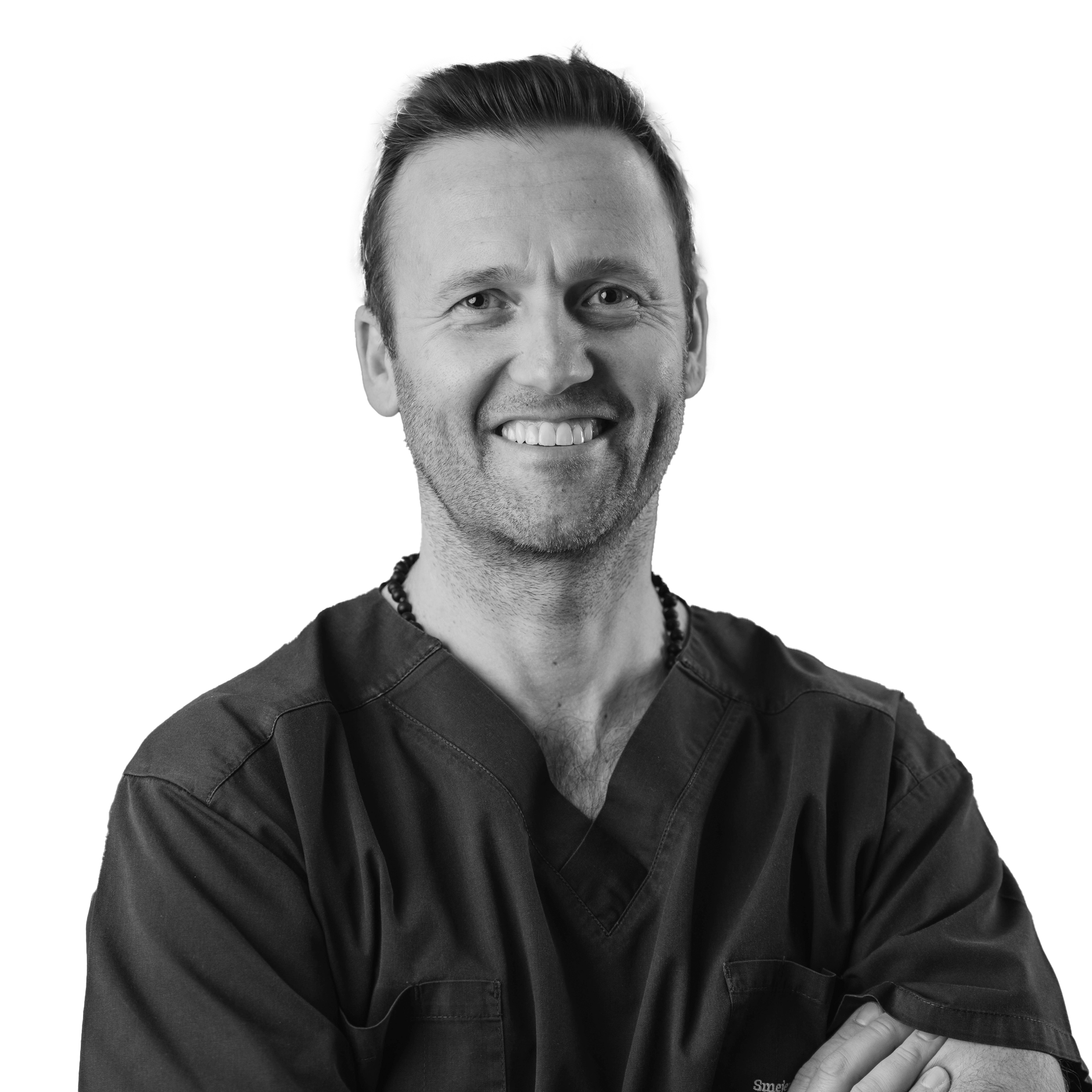
Meet Your Host,
Dr. Sebastjan Perko, PhD.
Greetings from the Maha Clinic team! I am Dr. Sebastjan Perko, your host for the Maha Symposium on Integrative Medicine & Dentistry at the enchanting Ljubljana Castle on October 18th and 19th. With a passion for advancing healthcare, my vision is to foster a global exchange of knowledge among professionals, working towards healing the world. Join us for enlightening discussions, collaborative initiatives, and the integration of diverse medical approaches. Together, let’s shape the future of integrative medicine amid the rich history of our beautiful city of Ljubljana, complemented by nourishing food, a jazz concert, cutting-edge technology, and engaging lectures from international experts. My team and I look forward to connecting with you.
Photos
Co–organized by Effective Health Society.
MAHA
Slovenska cesta 54, 1000 Ljubljana, Slovenija, Europe
Tel. +386 51 248 888
email: info@maha.clinic
Mon, Tue, Wed: 8:00 – 15:00
Thu: 12:30 – 20:00
Fri: 8:00 – 13:30
© Copyright 2024 – Maha / made by visualbraingravity
Accommodation
Accommodation near Maha Integrative Medicine and Dentistry.
Large Luxury Hotels
1. InterContinental Ljubljana
★★★★★
Slovenska cesta 59 (5-minute walk)
The tallest hotel in Ljubljana offering panoramic views, a rooftop restaurant (B-Restaurant), spa & wellness center, and indoor pool.
2. Grand Hotel Union Eurostars
★★★★
Miklošičeva cesta 1 (10-minute walk)
Historic Art Nouveau hotel with elegant rooms, an indoor pool, and the iconic Union Café.
Boutique Luxury Hotels
3. Hotel Cubo
★★★★
Slovenska cesta 15 (5-minute walk)
Design-forward hotel with excellent service, spacious rooms, and highly praised breakfasts.
4. AS Boutique Hotel
★★★★
Čopova ulica 5a (7-minute walk)
Stylish, quiet boutique hotel owned by AS Restaurant group, offering premium privacy in a park-like setting.
Smaller Boutique Hotels
7. Zlata Ladjica Boutique Hotel
★★★★★
By the Ljubljanica River, next to Cobblers’ Bridge
Historic 17th-century inn with gourmet restaurant and personalized services.
8. Lesar Hotel Angel
★★★★
Beneath Ljubljana Castle on Gornji trg
Boutique hotel in a medieval building, offering peaceful charm and a lush garden.
9. Hotel Heritage
★★★★
In a 16th-century Renaissance building near Triple Bridge
Uniquely decorated rooms with a cozy atrium and prime location in the medieval city center.
Transfer Service
For convenient airport transfers from across Europe to Ljubljana city center:
GOOPTI Transfer Service
MAHA
Slovenska cesta 54, 1000 Ljubljana, Slovenija, Europe
Tel. +386 51 248 888
email: info@maha.clinic
Mon, Tue, Wed: 8:00 – 15:00
Thu: 12:30 – 20:00
Fri: 8:00 – 13:30
© Copyright 2024 – Maha / made by visualbraingravity
Team
Maha Team
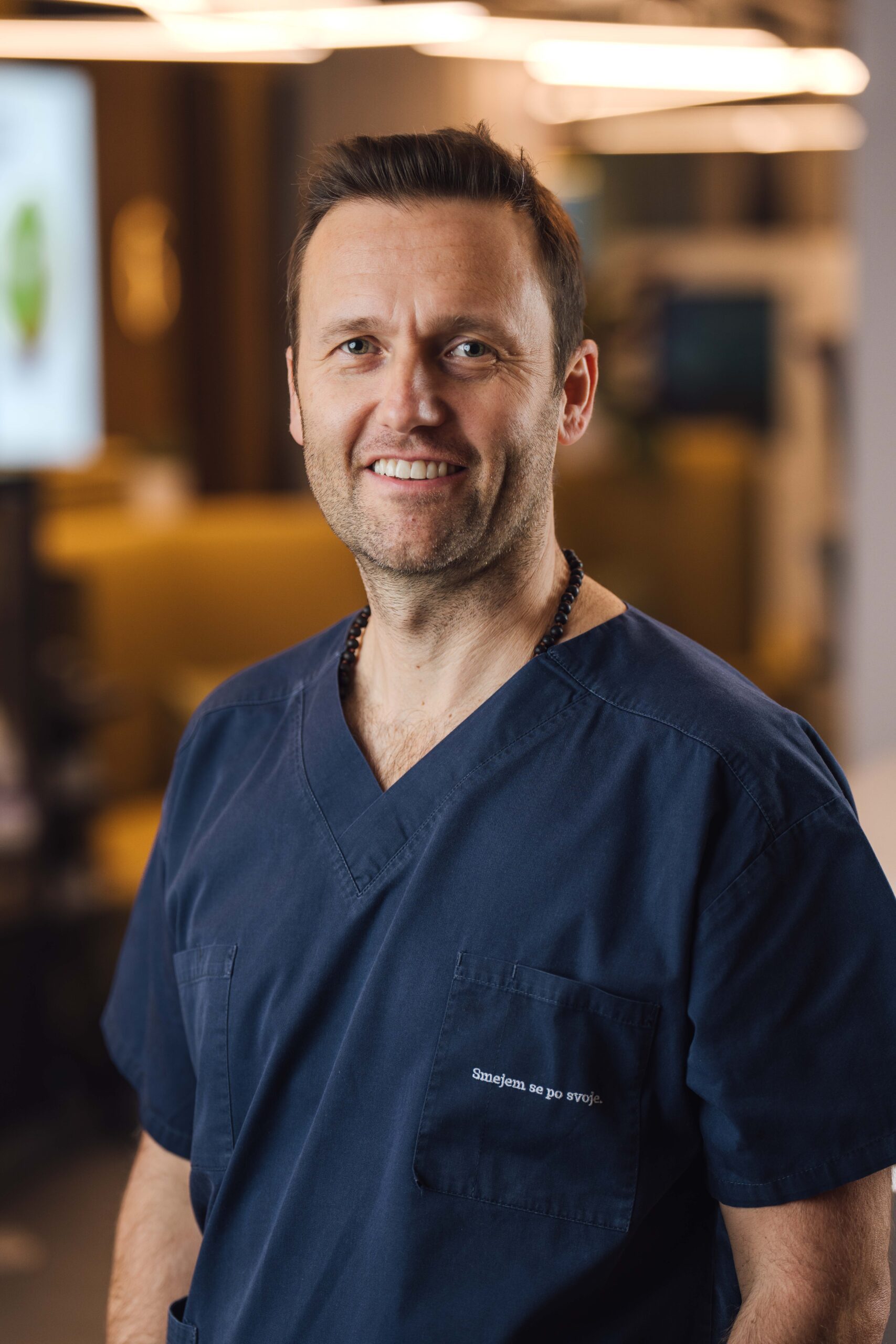
Sebastjan Perko, phD, DMD
Expert in Biological Dentistry, Oral Surgery and Biological Medicine
From an early age, I developed a strong affinity for nature and a deep respect for the well-being of living organisms. These values, including the importance of clean water, a healthy environment, and the sanctity of life, have been integral to my character, requiring no persuasion or elaborate reasoning. Even during my high school years, I was determined to pursue a career in caring for people and their physical health.
Over the years, my experiences have exposed me to diverse cultural and medical perspectives, while active participation in conferences has broadened my scientific insights beyond local boundaries. Valuing personal health and well-being greatly, I have actively contributed to the development of the holistic dentistry concept at the Maha Clinic since 2013. This endeavor aligns with my enduring childhood inclinations and complements the comprehensive approach of the Maha Center and the nutritional focus of Maha Bistro, all collectively dedicated to fostering a healthy future for individuals.
My academic journey started at the Faculty of Medicine in Ljubljana, complemented by in-depth research on dental materials during my doctoral work at the International Postgraduate School of the Jožef Stefan Institute. This research culminated in the development of a groundbreaking bioactive mixture, certified and introduced to the dental profession just before the global pandemic. Through these experiences and my exposure to traditional medical systems, I have adeptly combined traditional and modern approaches to optimize health outcomes.
I am grateful for the support of my mentors and colleagues, as well as the contributions of our international partners, notably in Switzerland, whose long-standing commitment to similar healthcare practices serves as a continual source of inspiration and collaboration.
Jana Pahole, dr. med., spec. int. onk.
Dr. Jana Pahole is a prominent figure in the field of oncology, particularly specializing in internal oncology. Her career trajectory is marked by significant contributions and achievements:
1. *Educational Background*: Dr. Pahole graduated from the Medical Faculty in Ljubljana in 2004, demonstrating early promise in her field (https://svetlika.si/jana/).
2. *Professional Experience*: She served for two decades at the Oncology Institute Ljubljana, initially in the Department of Acute Palliative Care and later as a physician in the Lymphoma Department. From January 2023, Dr. Pahole began practicing private integrative oncology (https://posvetuj.se/strokovnjaki/jana-pahole-dr-med-spec-internisticne-onkologije/). She was involved in the Metulj project and participated in numerous training programs related to palliative care and the treatment of various malignancies (https://svetlika.si/jana/).
3. *Certifications and Specializations*: In her pursuit of medical excellence, Dr. Pahole completed her specialization in internal oncology with commendation and passed the European Society for Medical Oncology (ESMO) examination in 2014 (https://svetlika.si/jana/#:~:text=,2022%0A%0Aterapevt%20medicinske%20hipnoze). She has also trained in non-violent communication, reflexotherapy, and in 2022, she earned the title of Therapist in Medical Hypnosis (https://med.over.net/moderator/jana-pahole-dr-med-spec-internisticne-onkologije/) (https://svetlika.si/jana/).
4. *Holistic Approach and Patient Communication*: Dr. Pahole emphasizes open communication with patients, believing it to be essential for trust and a collaborative relationship. Her approach extends beyond medical treatment, focusing on the patient’s values, relationships, beliefs, and existential questions (https://med.over.net/moderator/jana-pahole-dr-med-spec-internisticne-onkologije/).
5. *Personal Life and Interests*: Beyond her professional life, Dr. Pahole is a mother to three nearly grown children, finds peace in nature, inspiration in music, and enjoys learning languages and musical instruments (https://svetlika.si/jana/).
Dr. Pahole’s career reflects a deep commitment to oncology, patient care, and holistic treatment approaches. Her work in integrative oncology demonstrates her dedication to addressing not just the physical aspects of cancer but also its psychological, emotional, and social impacts.
Erik Božič
Project Manager and Business Organizer
As a former professional chef with a rich international career, I gradually transitioned away from the hospitality industry during the pandemic year of 2020 and found myself drawn to financial matters and business organization. I have an educational background in philosophy and economics, which complements my wide range of competencies and knowledge gained through various work and entrepreneurial experiences. I value humility, which is why I constantly engage in self-education and strive to broaden my horizons. The guiding principles of my career are sustainability and conscious decision-making, which I aim to apply to all aspects of my life.
My main hobbies include nature walks, sports activities, and exploring and analyzing financial markets. I joined Maha Clinic as a project manager and business organizer. I also oversee Bistro Maha, where I act as a kitchen mentor and consultant.
Bojan Vidniš, DMD
Expert in Biological Dentistry
“My interest in how the human body works dates back to my early childhood when I eagerly read all popular science magazines and encyclopedias that came my way. This path led me to a science-oriented high school in Maribor and then to the study of dental medicine at the Faculty of Medicine in Ljubljana.
I have always strived to seek the essence of everything, and during my studies, I systematically explored various worldviews through psychology and philosophy. This quest gradually led me through many periods of human thought, providing me with many answers but also numerous new questions. Finally, this search led me to yoga and Ayurveda, the magnificent Indian treasures of wisdom and knowledge about life.
Over 10 years ago, I encountered the authentic and traditional Indian yoga of the Bihar School of Yoga, which is among the most respected yoga schools in the world. Here, I met my teacher of yoga science and Ayurvedic doctor, Swami Vishwashakti Saraswati. Under her guidance and mentorship, I completed initial yoga courses, integral yoga, prana vidya, chakra shuddhi, and kriya yoga. I also attended a two-and-a-half-year education for Ayurvedic and marma therapists at the Tara Yoga Center.
While working in Oral Medicine, where I particularly focus on holistic dentistry and the connection between oral health and the whole body, the desire to merge knowledge from the field of traditional Indian medicine with modern medical discoveries gradually formed within me. With an invitation from colleague Sebastjan Perko, I happily began collaborating with the integrative Maha Clinic. Today, I continue to enhance my knowledge with the latest findings in contemporary nutrition, with a special emphasis on plant-based diets, through education in integrative medicine under the guidance of Dr. Thomas Rau from the Paracelsus Clinic in Switzerland, and through further development in dark-field microscopy, which represents a fundamental diagnostic tool of Biological Medicine.”
Marko Berkopec, DMD
Expert in Oral Surgery
“I spent my childhood in the pleasant environment of Vavta vas near the Krka River. Even as a child, I was interested in technology, model aviation, and music. I demonstrated my manual skills by playing classical guitar and later baritone. After completing high school in Novo mesto, I decided to study dental medicine at the Faculty of Medicine. I successfully completed my studies in 2007, and after completing my internship and professional examination, I was employed at the Health Center Ljubljana – Bežigrad, where I briefly held the position of the head of adult dentistry. I was also a regular member of professional commissions. Throughout, I strived for progress and development, regularly attending seminars, congresses, and professional workshops at home and abroad. However, within the public dental healthcare system, I couldn’t provide patients with everything that modern dentistry has to offer.
I gladly accepted the invitation from Dr. Perko and Dr. Bele to join the team in May 2016. In this pleasant environment, surrounded by like-minded people, I can finally realize my professional ambitions and offer patients comprehensive care at the highest level.
Simon Bele, DMD
Expert in General Biological Dentistry
From a young age, I showed signs of becoming a dentist. As a child, to the delight of my grandfather, I drilled quite a few holes in the facade of my grandparents’ house in Straža near Novo mesto. That was my first encounter with drilling. Of course, I didn’t patch up those holes; I learned how to do that much later. Since my father is a construction worker, and I have always been interested in buildings of all kinds, I initially considered becoming an architect in primary school. However, during my high school years, an extraordinary motorcyclist named Džuro came into my life, who had a drilling license. Thanks to him, I began contemplating a career as a dentist.
Thus, I became a first-year student at the Faculty of Medicine in Ljubljana, studying dental medicine. Seven years later, as a young dentist, I was employed at the Health Center Novo mesto, where despite my knowledge and great desire, I didn’t enjoy it much since I often had to say “no” to patients. Therefore, I soon opened my private practice. Several years later, during further education, I met Sebastjan Perko, my college mate. This chance encounter brought about the idea of expanding the concept of the Maha Clinic to Dolenjska, and there was no doubt about my future professional path, as the Maha Clinic is a team of exceptional individuals, experts who enjoy their profession, or rather, their mission. Here, we practice true and genuine dentistry that I have been seeking for eight years.”
Jure Vraničar, ba. pth.
Analytical psychology trainee and IAAP router
I am a trainee in analytical psychotherapy (Jungian psychotherapy), an IIAP router, and a master’s student in psychotherapeutic sciences. I am a member of the Slovenian Association for Analytical Psychology (SZAP), the International Association for Analytical Psychology (IAAP), and actively participate as a member of the board in the Mindfulness Development Association.
I work with individuals and provide in-depth psychotherapy based on the principles of Jungian analysis. The journey into the depths of the psyche can increase self-awareness, help find true answers to life-changing questions, and lead to a more fulfilling life. A significant part of my work involves men and women who feel stuck in their lives or are struggling with anxiety, depression, addictions, burnout, mental disorders, or challenges in their relationships.
Jungian psychotherapy is based on the idea that the unconscious is our largest and most powerful psychophysical element, with which we learn to establish a collaborative relationship. By integrating conscious and unconscious elements of our psyche, we reduce psychological suffering and problems and become creatively unique.
In addition to the process of integrating conscious and unconscious parts of the mind in Jungian psychotherapy, I also explore our relationship with nature and how reconnecting with nature can help us rediscover a sense of wholeness within ourselves. Jung called this archetype of wholeness the Self.
In the therapeutic process, I ensure professionalism, confidentiality, and anonymity in accordance with the Personal Data Protection Act. I am committed to the ethical code of the Slovenian Chamber of Psychotherapists (SKZP) and the International Association for Analytical Psychology (IAAP).
I continuously invest in my own process of self-discovery and growth through Jungian psychoanalysis. I also engage in additional education to deepen my understanding of Jungian psychology, sandplay therapy, psychedelic psychotherapy, mindfulness, and spirituality.
Aleksander Donaj
Manual Therapist and Personal Trainer
I have been involved in martial arts since my early youth. I trained Shito Ryu Karate for three years and Jiu Jitsu for one year. Then I became interested in mountaineering and fitness. I completed my training for the title of Mountaineer in 2002 by passing the exam conducted by the Alpine Commission of the Mountaineering Association of Slovenia. In 2005, I obtained my fitness instructor and group exercise instructor certification from the Fitness Association of Slovenia. To enhance my practical training knowledge, I enrolled in and completed several additional certifications over the following years. In 2013, I became a personal trainer certified by FISAF, a STOTT Pilates instructor, and a SPINNING instructor. In 2015, I became a Kettlebell lifting instructor, and most recently, I obtained certification as an Olympic weightlifting instructor from the European and Slovenian Olympic Weightlifting Associations. In addition to these qualifications, I am a registered Fitness Instructor with the Fitness Association of Slovenia and listed in the register of professionally educated and trained workers in sports under the Ministry responsible for sports. As I wanted to expand my knowledge in the field of therapies, I enrolled in a three-year study program in Manual Therapy at the Academy for Manual Therapy in Ljubljana, which I completed in 2019.
In addressing musculoskeletal problems of patients, I combine over 15 years of experience and extensive practical knowledge of body movement, training individuals and groups, and various manual techniques used in Manual Therapy. Manual Therapy does not involve the use of drugs or other invasive forms of treatment but relies on a combination of different manual techniques to identify and address the root causes of problems. Manual Therapy is effective in treating various conditions, including back pain, joint pain, sciatica, nerve inflammation, and mobility issues.
My primary goal in every treatment is to restore balance, influence the body holistically, and promote long-term health. Regardless of whether it’s training or Manual Therapy, I approach each patient as a whole person and provide individual attention. I conduct a structural-functional examination and assess the patient’s status, based on which I develop a therapeutic plan. If during testing I determine that Manual Therapy is not the appropriate approach for a specific problem, I refer the patient to another healthcare professional.
Vaidya Ajil Kunhumbidukka Veettil
Ayu. med. spec., CBT, MSc in Yoga Science, RAV (General Medicine)
I landed in Slovenia for the first time in 2017. I started practicing Ayurveda in the coastal region, on the beautiful coast of Slovenia, in Portorož. There I got the opportunity to meet people from different countries, such as Slovenia, Italy and Germany. The main challenges I faced during my career were understanding people’s lives like food habits, life routine, daily routine, seasonal routine, work culture, psychology and climate change. Because Ayurvedic medicine attaches great importance to these factors for a comprehensive analysis of a person and holistic treatment. It was a great opportunity to learn about different cultures and people and to use Ayurvedic medicine to achieve the best results. During my seven-year journey of Ayurvedic practice in Slovenia, I encountered various medical conditions that required a holistic therapeutic approach.
I learned Nadi Pareeksha (pulse diagnosis method), one of the oldest and traditional methods of examination in Ayurveda, from my guru (teacher) Dr. Jayant Yeshwant Deopujari of Nagpur, India. I use this holistic method of examination to understand a person physically, mentally, emotionally and energetically.
I completed Ayurvedic Medicine from Kannur University and Post Graduate Diploma and MSc in Yoga Science from Tamil Nadu State University. I received a National Fellowship from RAV, Indian Ministry of AYUSH, in Kayachikitsi (General Medicine). I have been living and practicing Ayurveda in Slovenia for the last seven years.
Biju Muthu
Ayurveda therapist
I am an Ayurvedic therapist with 15 years of experience and I am thrilled to be a part of Maha Clinic. I have worked in India and Europe at various Ayurvedic centers with highly experienced doctors, continuously expanding my knowledge of Ayurvedic therapeutic practices.
I am well-versed in all Ayurvedic Panchakarma therapies (Ayurvedic detox therapy), Kerala Ayurvedic massages, including head, face, neck, back, and foot massages. In addition to Ayurvedic massages, I perform deep tissue massages, fruit massages, reflexology, facial therapies, and cupping therapy. It brings me great joy to collaborate with Maha Clinic and share my knowledge of Ayurveda, which contributes to your well-being.
Tjaša Žnidarišič, dipl. lab. zob. prot.
Dental Prosthetist
I could describe myself as an ambitious, organized, and reliable individual. Even in my childhood, I showed great interest in creating and designing. Therefore, I often utilized my free time to create jewelry and shape various objects from clay or dough. I knew that in the future, I wanted a profession where I could develop my creativity and artistic skills, so I enrolled in the High School for Pharmacy, Cosmetics, and Health, specializing in dental technology. I successfully completed high school with honors. This was followed by an internship at the Health Center Ljubljana – Vič. I truly enjoyed my work there, but I also desired to further expand my knowledge. Consequently, I enrolled in the Faculty of Health Sciences in Ljubljana, specializing in laboratory dental prosthetics, and graduated in November 2018.
I began my professional journey as a dental assistant. This allowed me to gain insights into my profession from a different perspective, but I still longed to work in a dental laboratory. When the opportunity to work at Maha Clinic arose, I gladly accepted it. I have always wanted to work in an organized environment surrounded by a motivated and dedicated team. Working at Maha Clinic enables me to experience personal and professional growth.
Ana Lea Vukovič
Dental Technician
In the 7th grade of primary school, I fell in love with the profession of dental technician. I always yearned for design and creativity. When my parents enrolled me in tennis lessons (at the age of 6), I would often make small dough creations on the artificial sand court rather than playing tennis. I knew that in this profession, I could enjoy myself and utilize my full potential. I find it easier to transform a mental image into a 3D shape than to draw it on a piece of paper.
I began my professional journey at the High School for Pharmacy, Cosmetics, and Health, specializing in dental technology. After completing my education, I underwent an internship at the Health Center Ljubljana, Moste unit. Later, after passing the professional examination, I found employment in a dental laboratory. I continuously enhance my knowledge through seminars and educational programs, both single-day events and multi-day courses.
Later, the opportunity to work at Maha Clinic presented itself. Due to the excellent team of colleagues and my passion for the work, I eagerly come to work every day. The working environment, which encourages personal and professional growth on both levels, makes my career path a fairy tale come true.
Sara Lepenik
Oral Hygienist
I come from Mengše, where I grew up in a family with three children. I spent most of my early childhood with my grandmother, who filled my life with daily joy, music, and the desire to develop myself. I always aspired to become a professional violinist, but as I matured, I realized that playing the violin would remain one of my hobbies.
My path led me to dentistry. Enrolling in the study program of oral hygiene was one of the best decisions in my life, as I found a profession that truly brings me joy. During my studies, I started working at Maha Clinic, which gave me the opportunity to familiarize myself with various branches of dentistry. I began working at Dentoteka, where I gained significant experience with oral hygiene tools, which now greatly aids me in my work. The opportunity to share my knowledge with people in daily practice is the greatest wealth that enriches me day by day. Proper oral hygiene is a crucial element in dentistry, and my mission is to teach each individual the correct practices.
Maha Clinic motivates me to pursue new knowledge, and I look forward to all the upcoming challenges.
Katja Erjavec Damjanović
Oral Hygienist
Driven by the desire to help people, which has accompanied me since my early youth, I enrolled in the study program of oral hygiene. During my studies, I realized that the work aligns perfectly with my skills, which further motivated me to acquire knowledge in working with people in a dental environment. The work I do brings me great satisfaction due to its dynamic nature and the desire for continuous improvement.
Naturally, I am energetic and always optimistic, which I believe is crucial when working with our guests. I take great pleasure in being part of such a successful team as the Maha Clinic. Here, I am constantly inspired by the work methodology, high-quality services, and the fact that no one is just a number. Every individual matters here.
Bernarda Novak
Assistant
I felt the joy of working with people very early, about ten years ago, when I got my first student job. After completing my education in economics, and later in cosmetics, I finally took the right path. A huge desire to work in dentistry was awakened in me.
I will never forget the day I first entered the premises of the Maha Clinic. The whole atmosphere, energy and the first reception from the collective took me over and enchanted me. Deep inside, I secretly hoped that I would start writing a new chapter of my life story at the Maha clinic. I have always wanted to work in an orderly and pleasant environment where positive energy and patient satisfaction reign. I like the combination of manual skills, administration and teamwork. I am aware that the assistant is the first contact in communication with patients and that therefore the desire to work with people is very important in such a position. It shows itself with a kind word, a smile and a warm welcome. I am finally doing work that I enjoy, I am learning every day and encountering new challenges. I meet new people every day, and caring for their well-being and mutual trust is what makes me happy. I am proud to be part of a team of experts in the field of dentistry, from whom I draw invaluable knowledge, which is a great journey for my life.
Irnes Čajić
Assistant
I discovered my passion for working with people at a very young age, about ten years ago, when I got my first student job. After completing my education in economics and later in cosmetology, I finally found my true calling. A strong desire to work in dentistry awakened within me.
I will never forget the day I first stepped into the premises of Maha Clinic. The entire ambiance, energy, and the warm welcome from the team overwhelmed and enchanted me. Deep inside, I secretly hoped that Maha Clinic would be the place where I could start a new chapter in my life. I have always wanted to work in a well-organized and pleasant environment, where positive energy and patient satisfaction prevail. I appreciate the combination of manual skills, administration, and teamwork. I am aware that as an assistant, I am the first point of contact with patients, and therefore, the desire to work with people is crucial in such a position. It manifests through kind words, a smile, and a warm reception.
Finally, I am doing work that I enjoy, learning and facing new challenges every day. I get to meet new people on a daily basis, and caring for their well-being while establishing mutual trust is what brings me happiness. I am proud to be part of a team of dental professionals from whom I draw invaluable knowledge, which serves as an excellent foundation for my life.
Nataša Velše
Assistant
Since childhood, books have been my great companions, which is why I would like to paraphrase our great poet Tone Pavček, who said that the world is beautiful if you give something to someone and if you treat people with kindness. Unconsciously, Pavček’s words have accompanied me since my early days when I was happiest in the company of smiling people. It has always been a great satisfaction for me to bring a smile to people’s faces, to help them, and to make the world a better place.
All of this led me to the decision to enroll in the Secondary Health School in Novo Mesto. New knowledge and my first work experiences confirmed that I made the right choice. After completing high school, I found employment at the Nursing Home for the Elderly in Novo Mesto, where I worked for several years. I am grateful for those years as they provided me with a wealth of knowledge in the field of healthcare and enriched me personally. Genuine human relationships, kind words, and teamwork are essential for us as human beings. When we nurture these foundations with professionalism, we can succeed as employees.
And my “dental journey”? Taking care of a healthy smile is essential for everyone. I am almost obsessed with it myself, and when I recently underwent orthodontic treatment as a patient, the world of dentistry attracted me even more. An opportunity to work at Maha Clinic presented itself to me. I had the chance to meet Dr. Simona Bele, as I was her patient years ago, where she demonstrated her professionalism and empathy. I immediately seized the opportunity and became part of the Maha Clinic team as a dental assistant.
I am grateful to be part of such a professional team that allows me to enhance my knowledge while maintaining personal contact with patients. Lifelong learning is inherent to human beings, and I am already looking forward to new knowledge and experiences at Maha Clinic.
Rok Papež
Assistant
I come from Bela krajina, more precisely from Črnomelj. Since I was a child, I have had a technical mindset and have been a lover of sunsets and beautiful mountains.
After completing primary school, I wanted to work with people, so I continued my education in Novo mesto, where I graduated from secondary health school in 2017 and obtained the title of healthcare technician. In the desire for further education and a more technical profession, I enrolled in the Faculty of Health Sciences, specializing in laboratory dental prosthetics, and became fascinated with the work performed by prosthetists.
In 2021, I joined Maha Clinic as a student and immediately became enthusiastic about their vision and way of working. After 2 years of working as a student, I also became employed, and now we form a team that anyone would undoubtedly desire to be a part of.
Aleksandra Saša Habat
Administration
Since I was young, I have always enjoyed working with people, so after completing my education, I got a job at Brmik Airport. As a passenger service agent, I have been working there for the past 26 years. Although I enjoyed my work, after the birth of my youngest child, I wanted a schedule that would allow me more time with my family. In search of new opportunities, I found it at Maha Clinic. I was thrilled when I learned that I was offered a chance for a fresh start. I gathered my courage and said goodbye to the airport, embarking on new challenges.
At Maha Clinic, I look forward to each new working day spent among friendly and professional colleagues. I am delighted that I still get to work with people and that there is always something happening on the job. I gladly utilize all the skills I have acquired over the years at the airport in my current work.
I am immensely happy to finally have a regular work schedule, weekends, and holidays off, and no longer have to wake up in the middle of the night. Now I have more time for myself and for my son, as I can actively participate in his upbringing.
Marija Keršič
Administration
It was the year 1987 when I came into the world. I grew up in Ljubljana as an only child and attended primary and secondary school there. For my studies, I chose the Faculty of Organizational Sciences. During my time at university, I took on various student jobs, which provided me with a wealth of experience, particularly in working with people.
I joined Maha Clinic in 2021, and because I believe that everything happens for a reason, I also believe that I found myself in the story of Maha Clinic for a purpose. Now I realize that my choice of studies also had a reason, as in the work I do, I can combine organization and working with people. The field of dentistry was relatively unknown to me, but I was guided by the desire for new knowledge and challenges. Upon arriving at the clinic, I quickly began to feel like part of the team. The mutual connection and teamwork make me look forward to coming to work every day, and it serves as motivation for doing a good job.
Špela Jerič
Administration
I am a student of naturopathy, graduate administrative organizer, with joy in life and new challenges. The nine-year experience of living in Spain brought me new perspectives and energy that marked me forever. I live with the principle of lightness and intuition, which in my free time also takes me to the clouds with my second (skydiving) family.
MAHA
Slovenska cesta 54, 1000 Ljubljana, Slovenija, Europe
Tel. +386 51 248 888
email: info@maha.clinic
Mon, Tue, Wed: 8:00 – 15:00
Thu: 12:30 – 20:00
Fri: 8:00 – 13:30
© Copyright 2024 – Maha / made by visualbraingravity
Clinic Tour
Clinic Tour
MAHA
Slovenska cesta 54, 1000 Ljubljana, Slovenija, Europe
Tel. +386 51 248 888
email: info@maha.clinic
Mon, Tue, Wed: 8:00 – 15:00
Thu: 12:30 – 20:00
Fri: 8:00 – 13:30
© Copyright 2024 – Maha / made by visualbraingravity
How to get to MAHA
Location of Maha Integrative Medicine and Dentistry.
Your journey to our facility, situated in the serene and welcoming city of Ljubljana, begins at one of the nearby international airports: Venice, Treviso, Ljubljana, or Zagreb. Each of these airports offers a unique travel experience and convenient access to Ljubljana.
1. Venice Marco Polo Airport (VCE): Located in Italy, it is one of the busiest in the region. From Venice, you can embrace the scenic routes to Slovenia. The journey to Ljubljana typically takes around 2.5 hours.
2. Treviso Airport (TSF): Also in Italy, and smaller than Venice’s airport, Treviso offers a cozy and efficient travel experience. The travel time to Ljubljana is similar to that from Venice.
3. Ljubljana Jože Pučnik Airport (LJU): Slovenia’s main international airport is conveniently close to your final destination. Located just about 25 kilometers from Ljubljana, it offers a short and comfortable travel to the city.
4. Zagreb Franjo Tuđman Airport (ZAG): Situated in Croatia, this airport is a bit further away, with the journey to Ljubljana taking approximately 2 hours.
Upon arrival at any of these airports, you have two primary options for your onward journey to Ljubljana:
Taxi Services: Available at all airports, offering a direct and private way to reach Ljubljana. While this option is more expensive, it provides convenience, especially if you are traveling with luggage or in a group.
GoOpti Airport Shuttle Services: A popular and economical choice for travelers. GoOpti offers pre-booked shared or private transfers to Ljubljana. It’s a reliable service that can be tailored to your schedule and is known for its punctuality and comfort.
Choosing the right airport and mode of transport can significantly influence your travel experience. Each airport has its unique advantages, and the choice largely depends on your travel preferences, budget, and the time you wish to spend traveling. Welcome to Slovenia, and we look forward to your arrival at Maha Integrative Medicine and Dentistry.
MAHA
Slovenska cesta 54, 1000 Ljubljana, Slovenija, Europe
Tel. +386 51 248 888
email: info@maha.clinic
Mon, Tue, Wed: 8:00 – 15:00
Thu: 12:30 – 20:00
Fri: 8:00 – 13:30
© Copyright 2024 – Maha / made by visualbraingravity
education
Maha Partner.
Join a trusted network of forward-thinking practitioners who rely on Maha Clinic
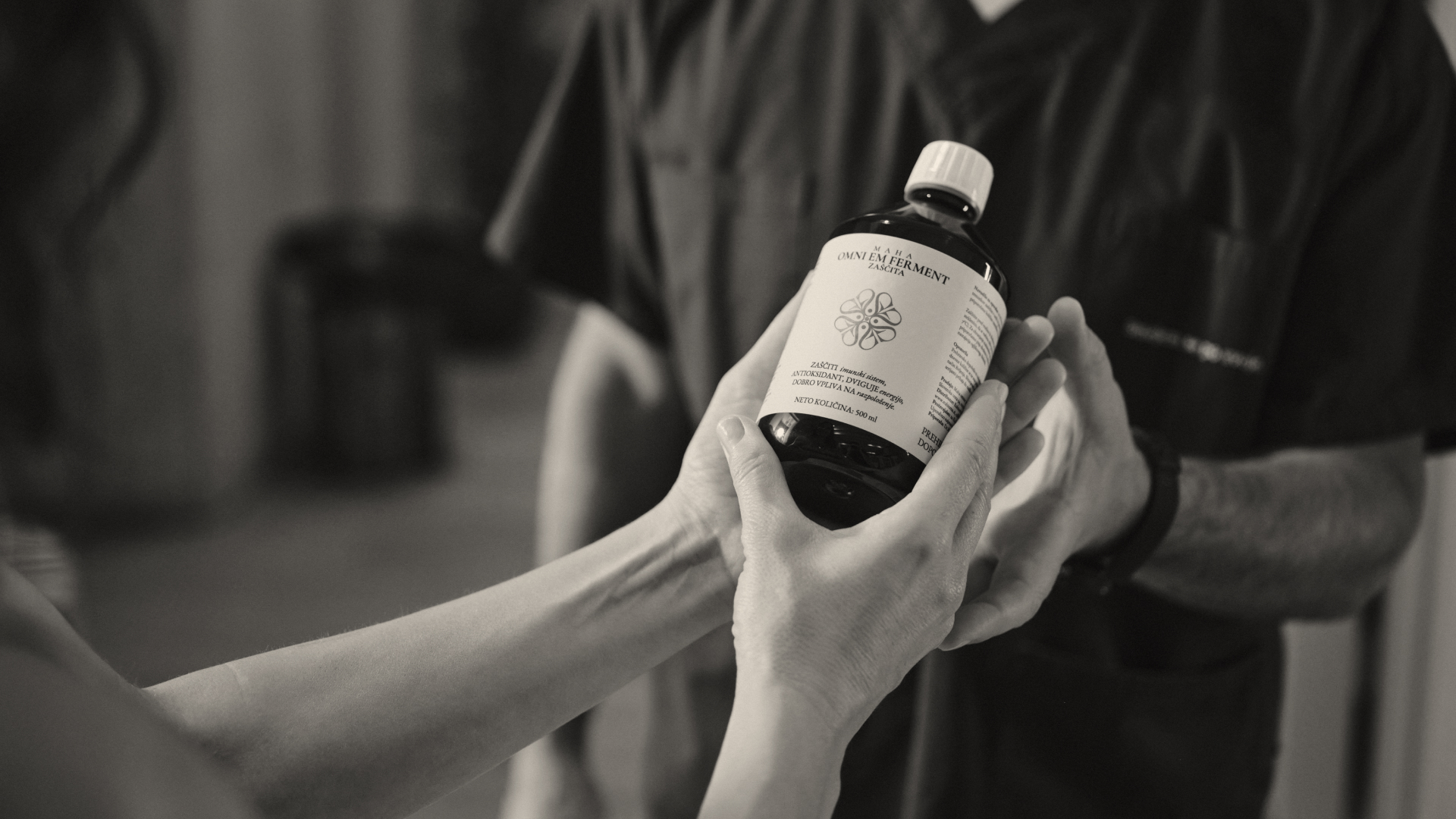
Whether you’re looking to enhance outcomes for your complex cases or expand your therapeutic tools — this partner-portal is your gateway to smarter, integrative collaboration. Register now to access our secure partner tools and elevate your clinical impact.
Maha Institute.
Advance your expertise in integrative medicine & dentistry.
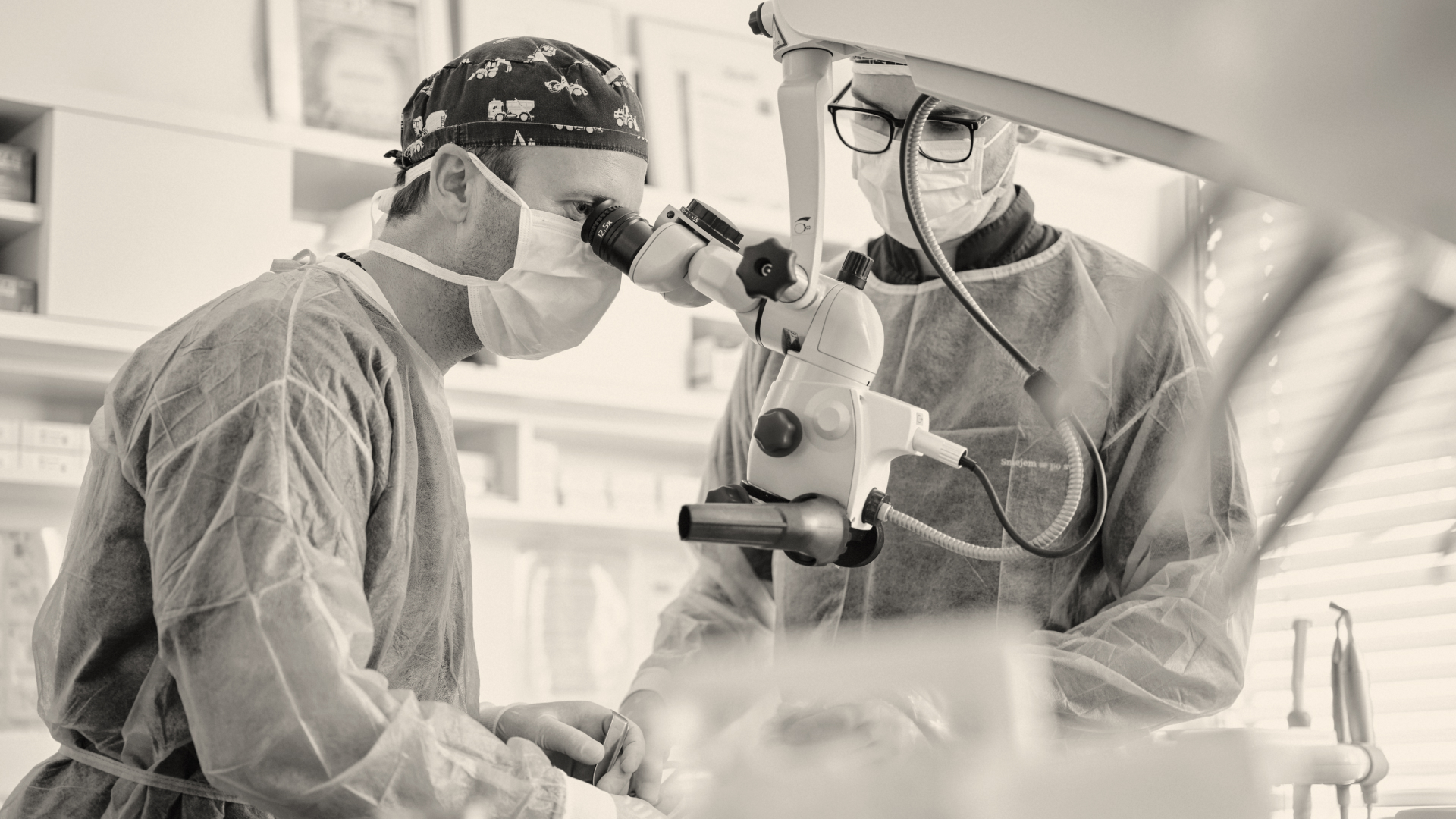
The Maha Institute offers immersive, five-day training programs designed for healthcare professionals who want to bridge advanced medical knowledge with cutting-edge dental and integrative practices. Maha institute for integrative medicine & dentistry. Choose from three tailored curricula—Basic Dental, Advanced Dental, and Non-Dental—to deepen your understanding of systemic inflammation, precision diagnostics, and patient-centered protocols. Each course combines evidence-based lectures with interactive case discussions for immediate clinical application.
Maha Lectures
Biological dentistry: fundamentals and effective Methods: Preventive measures and therapeutic approaches to promote bone and soft tissue healing.
This abstract explores the pivotal role of the microbiome and osteoimmunology as key factors influencing overall systemic health in the context of dentistry.
Unveiling the Oral Systemic Axis: Exploring the Role of Microbiome and Osteoimmunology in Biological Dentistry
Biological Dentistry emerges as a burgeoning field acknowledging the intricate interplay between oral well being and systemic health.
Biological Dentistry is an emerging field that recognizes the interplay between oral health and systemic health.
This abstract explores the pivotal role of the microbiome and osteoimmunology as key factors influencing overall systemic health in the context of dentistry.
MAHA
Slovenska cesta 54, 1000 Ljubljana, Slovenija, Europe
Tel. +386 51 248 888
email: info@maha.clinic
Mon, Tue, Wed: 8:00 – 15:00
Thu: 12:30 – 20:00
Fri: 8:00 – 13:30
© Copyright 2024 – Maha / made by visualbraingravity
Integrative Oncology
What Does the Term Integrative Oncology Mean?
Integrative means inclusive, forming a whole from different parts or fields. An integrative approach in medicine and oncology is holistic,incorporating approaches and methods from both classical medicine and complementary (formerly known as alternative) methods.
All this is aimed at providing support to the diseased individual, who is at the center of integrative care. Classical medicine has its place in the treatment of cancer. With its methods, such as surgical procedures, chemotherapy, and radiation, it has helped many people either overcome the disease or alleviate the burden and difficulties caused by it. Unfortunately, classical medicine does not provide answers and does not address areas that are inherent and important to every person, such as diet, sleep patterns, relationships in which an individual operates, work environment, connection with one’s own body and emotions, and so on. It is precisely these areas that are often the essential breeding ground where disease arises. Therefore, it is beneficial to deal not only with the consequences of a lifestyle but also to look into the core of the emergence of an illness. Classical medicine extinguishes the fire, while integrative medicine, in addition to extinguishing the fire, recognizes and removes all the factors that led to the fire.
Comprehensive care focuses not only on the disease that a person has but on the person as a physical, spiritual, and energetic being. As Sir William Osler stated at the beginning of the century, “A good physician treats the disease, a great physician treats the person who has the disease.”
A person who has fallen ill with cancer certainly deserves holistic care. Cancer is a disease that still carries with it a tinge of taboo and a death sentence. However, by listening, understanding, and getting to know the entire human being, we can identify which processes contributed to the emergence of this disease. This way, we can help stop or even reverse the processes that drive the cancer disease.
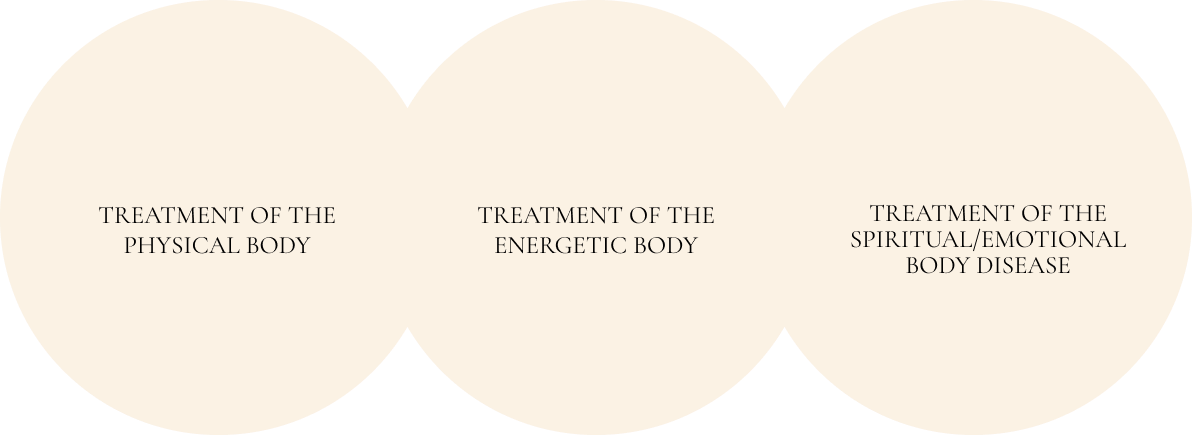
Treatment of the Physical Body
Nutritional Counseling, Support, and Laboratory Results
We are what we eat. If we consume high-quality, balanced food, we feel accordingly. It is important what, how much, and when we introduce substances into our body. Based on your current diet, we will recommend changes in meal composition if needed.
As part of a holistic approach, we will examine your levels of essential minerals, vitamins, the state of your gut flora, heavy metal burden, hormonal balance, etc., depending on your issues. All laboratory tests are conducted in collaboration with an integrative laboratory in Germany.
Upon receiving the results, we will discuss which diet regimen and dietary supplements would be advisable in your case to support your body in the healing process.
Immune System Support
The immune system is the body’s first line of defense against foreign invaders, which can include viruses, bacteria, parasites, or tumor cells.
Each of us has in every moment circulating tumor cells in the body. However, most of these are recognized and destroyed by our immune system, preventing the development of clinically visible disease. When the immune system is weak, ineffective, or too many immune cells are ‘occupied’ elsewhere (e.g., immune reactions to food irritants, vaccines, chronic inflammatory processes in the teeth), cancer cells have every opportunity to grow and multiply unnoticed. Therefore, an effective immune system is the primary mechanism by which we can limit and reduce cancer.
Classical medicine increasingly recognizes the role of the immune system, leading to the use of more drugs that stimulate immune cells (immunotherapy, which is expanding in areas of lung, kidney cancer, melanoma, etc.). Integrative oncology bases its practices on studies, similar to classical medicine, where guidelines for treating specific cancers are set or modified based on studies. In integrative oncology,
natural substances are often central, such as curcumin, high doses of vitamin C, white mistletoe, boswellia, resveratrol, GC-MAF, to name a few. Research is also being conducted on cancer and other substances like dichloroacetate and salinomycin.
Ozone Therapy
Ozone (O3) is a colorless gas composed of three oxygen atoms. It can be administered rectally or intravenously, with the latter being recommended for cancer diseases. Cancer cells thrive in low-oxygen environments, so higher oxygen concentrations affect the cell’s metabolism, destabilize it, and lead to cell death (apoptosis). Even during classical chemotherapy treatment, it supports the body and helps reduce side effects of chemotherapy.
Ionic Induction Therapy (PAPIMI)
The device uses ionic potential to affect the charge on the cell membrane, crucial for the transfer of substances in and out of the cell. A healthy cell membrane is a prerequisite for the cell’s processes to function harmoniously, as it allows the cell to receive all necessary substances and expel harmful waste. PAPIMI supports these processes. The device is widely used in rehabilitation medicine to speed up the healing of fractures and injuries. Recent studies highlight the importance of PAPIMI for symptoms of long COVID. Its use also improves blood circulation, resulting in better oxygen supply to cells.
Hyperthermia - Local and Systemic
Hyperthermia involves elevated temperature, either locally at the tumor site or systemically, where the entire body is heated to 39-41°C and maintained at this temperature for a certain period. It is particularly recommended during classical treatment as it improves blood flow, enhancing drug delivery to the affected area. Classical medicine primarily uses hyperthermia locally or regionally (HIPEC,
intracavitary, limb perfusion, etc.).(https://www.thelancet.com/journals/lanonc/article/PIIS1470-2045(02)00818-5/abstract, https://f.oaes.cc/xmlpdf/3a9b9e2a-7270-4e98-92a4-841069ff3d9c/2272.pdf
) Systemic hyperthermia not only improves blood flow but also activates the immune system, similar to the fever response during an infection.
Treatment of the Energetic Body
Bioresonance – Based on the fact that every body, organ, cell, and substance has its own frequency (vibration). The goal of the method is to transmit a healing impulse to the body, supporting health and healing.
Reiki – This type of therapy involves transferring cosmic healing energy through a channel, which is the therapist, to the patient or individual with a specific problem.
Tai Chi and Qi Gong – Tai Chi focuses on developing a sense of energy through movements, while Qi Gong focuses more on the sensation of each movement. Both techniques are relaxing, improving flexibility and balance.
Treatment of the Spiritual/Emotional Body
Emotions cannot be separated from the physical body. Increasing research shows that unrecognized, repressed emotions influence disease development. This is called psycho-neuro-endocrino-immunology (PNEI), with Dr. Gabor Mate being a representative of this developing branch of medicine. It explores the connection between the nervous and immune systems and the impact of emotions on individual health.
The fact is that today we are all prisoners of our thoughts and minds.Think about the last time you were without thoughts, just feeling your body? The essence of the techniques listed below is to bring awareness from thinking to feeling. When we feel, we cannot think. Through feeling, we can also connect with our traumas, memories, and
everything we had to suppress as a child to survive. Today, as adults, these defense mechanisms no longer serve us. On the contrary, they represent a cage that unconsciously suffocates and limits us from living to our highest potential. At the same time, they prevent us from awakening the inner wisdom and natural healing ability of the body.
Mindfulness – Teaches us to be present in the moment.
Meditation – Calming the mind and being fully aware.
Hypnosis – Medical hypnosis is an excellent way to deal with unrecognized emotions, process, and integrate them. By relaxing the body, attention is directed towards experiencing feelings. With a calm mind, the doors of the subconscious open, providing an opportunity for traumas, memories, or inappropriate behavior patterns to surface and be changed. Hypnosis is also extremely effective in managing side effects of treatment (nausea, vomiting, poor appetite, anxiety, insomnia, etc.). In the hands of a trained therapist, hypnosis is a process with no adverse effects. Source
Cognitive Behavioral Therapy – A therapeutic approach that seeks to uncover the connection between thinking, emotions, and behavior.
Yoga – Many report feeling calmer and coping better with the disease and side effects of treatment while practicing yoga. Source
All the therapies mentioned in bold are available at our center.
For additional information and sources, please refer to the provided links:
https://journals.sagepub.com/doi/10.1177/15347354241226667#:~:text=We%20found%209%20preclinical%20studies,in%20a%20dose%2Ddependent%20manner
https://www.integrativecancerdoc.com/dca-dichloroacetate.html
https://www.ncbi.nlm.nih.gov/pmc/articles/PMC9143079/
https://ascopubs.org/doi/10.14694/EdBook_AM.2014.34.233
MAHA
Slovenska cesta 54, 1000 Ljubljana, Slovenija, Europe
Tel. +386 51 248 888
email: info@maha.clinic
Mon, Tue, Wed: 8:00 – 15:00
Thu: 12:30 – 20:00
Fri: 8:00 – 13:30
© Copyright 2024 – Maha / made by visualbraingravity
events
Featured events
Event: 7th International Congress of Integrative Medicine 2025
Homepage: https://2025.icim.pt/
Date: 02.-05. Oct. 2025
Location: Porto, Portugal
MAHA is proud to be hosting a full-day educational room at this event!
Event: Effective BioMedicine Congress 2025
Homepage: https://ebm-congress.com/
Date: 02.-05. Oct. 2025EBM Congress – ebm-congress
Location: Vienna, Austria
Title: Beyond the Smile: How Modern Dentistry Impacts Systemic Health
Speaker: Dr. Sebastjan Perko, DDS, PhD.
Event: 3rd European Congress of Ceramic Implant Dentistry
Homepage: https://esci-online.com/
Date: 25.-27. Sept. 2025
Location: Horgen/Zurich, Switzerland
Speaker: Dr. Sebastjan Perko, DDS, PhD.
Title: Assessing the Impact of Intravenous Ozone AHT, Pulsed Electromagnetic Fields, and Serum Biomarkers on Ceramic Implant Osseointegration: An Ostell-Based Analysis
Maha Lectures
Biological dentistry: fundamentals and effective Methods: Preventive measures and therapeutic approaches to promote bone and soft tissue healing.
This abstract explores the pivotal role of the microbiome and osteoimmunology as key factors influencing overall systemic health in the context of dentistry.
Unveiling the Oral Systemic Axis: Exploring the Role of Microbiome and Osteoimmunology in Biological Dentistry
Biological Dentistry emerges as a burgeoning field acknowledging the intricate interplay between oral well being and systemic health.
Biological Dentistry is an emerging field that recognizes the interplay between oral health and systemic health.
This abstract explores the pivotal role of the microbiome and osteoimmunology as key factors influencing overall systemic health in the context of dentistry.
MAHA
Slovenska cesta 54, 1000 Ljubljana, Slovenija, Europe
Tel. +386 51 248 888
email: info@maha.clinic
Mon, Tue, Wed: 8:00 – 15:00
Thu: 12:30 – 20:00
Fri: 8:00 – 13:30
© Copyright 2024 – Maha / made by visualbraingravity
maha event tickets
Maha 40
€59.00MAHA Mineral Care
€14.90TRIPHALA GUGGUL
€22.00ASHWAGANDA
€22.00THYRO ACTIVE
€22.00GUGGUL
€22.00TRIPHALA GHEE
€22.80GHEE FOR COOKING
€11.30SHATAVARI GHEE
€23.90BRAHMI GHEE
€22.80DETOXARCANUM
€60.00ABAN B
€22.00DIGESTONE
€22.00- 1
- 2
MAHA
Slovenska cesta 54, 1000 Ljubljana, Slovenija, Europe
Tel. +386 51 248 888
email: info@maha.clinic
Mon, Tue, Wed: 8:00 – 15:00
Thu: 12:30 – 20:00
Fri: 8:00 – 13:30
© Copyright 2024 – Maha / made by visualbraingravity
